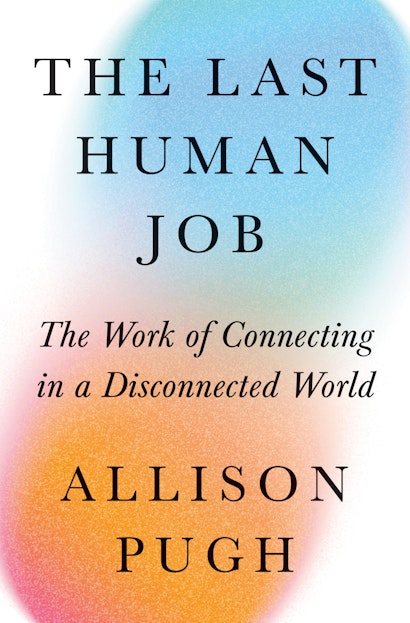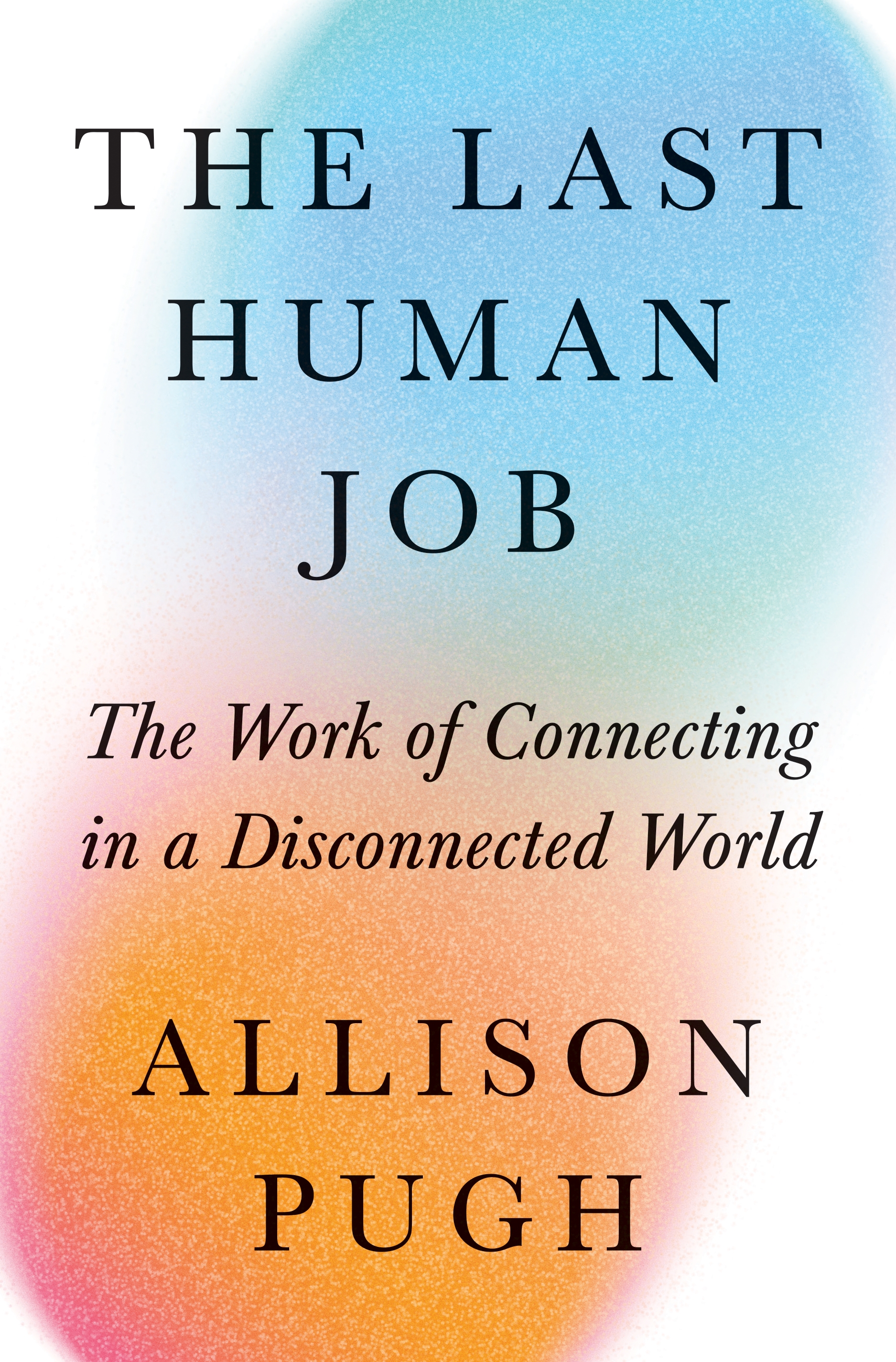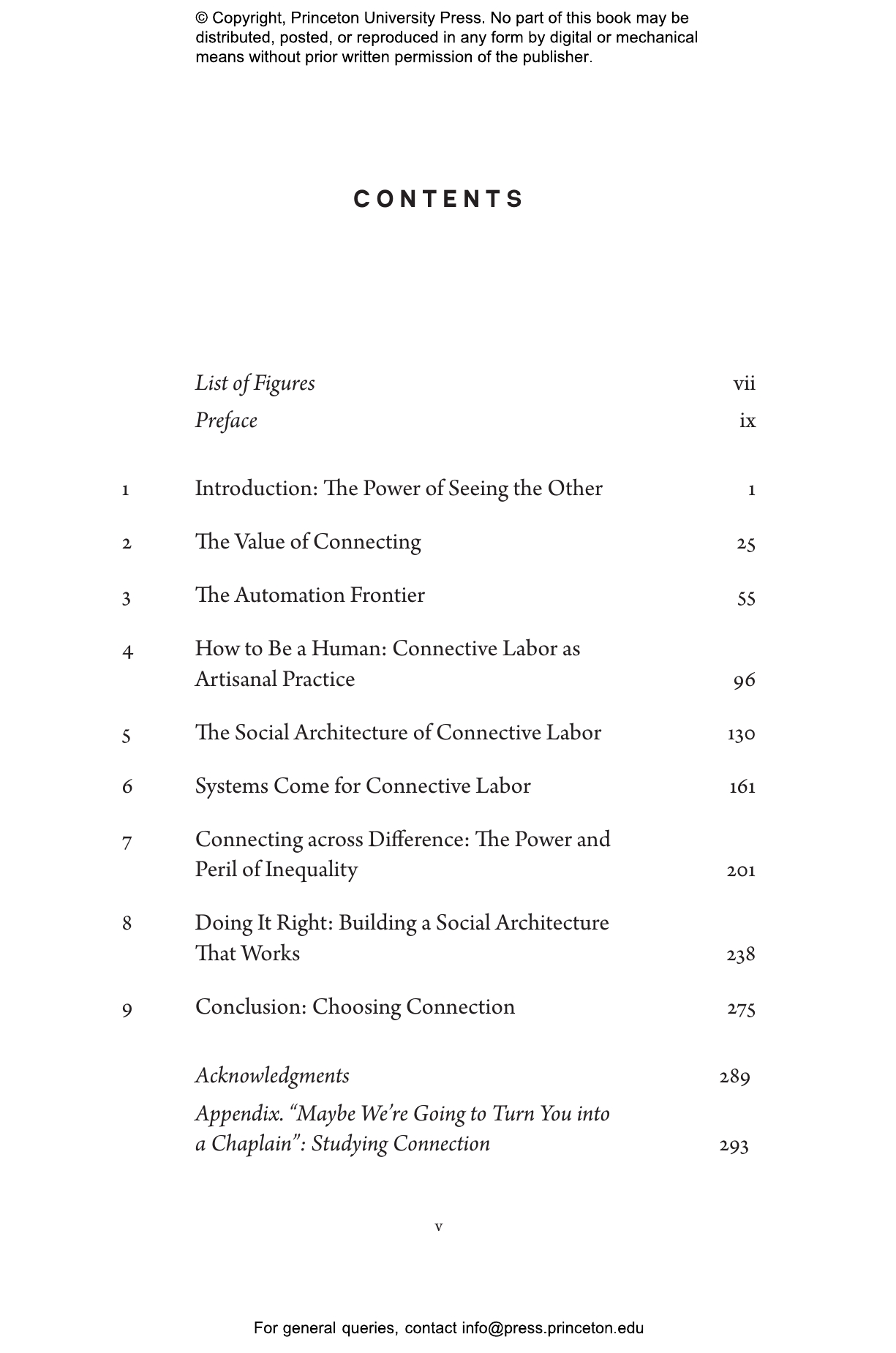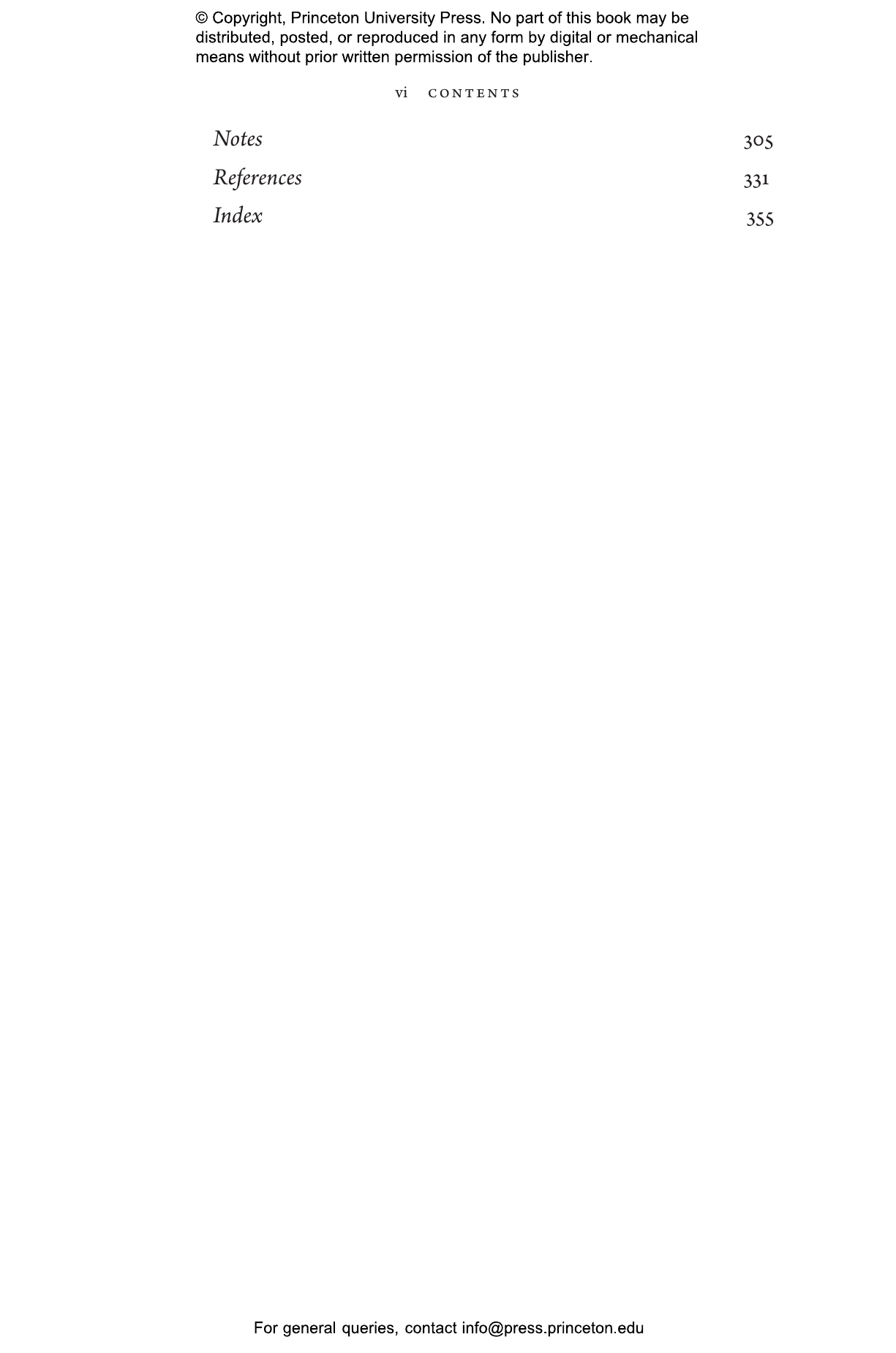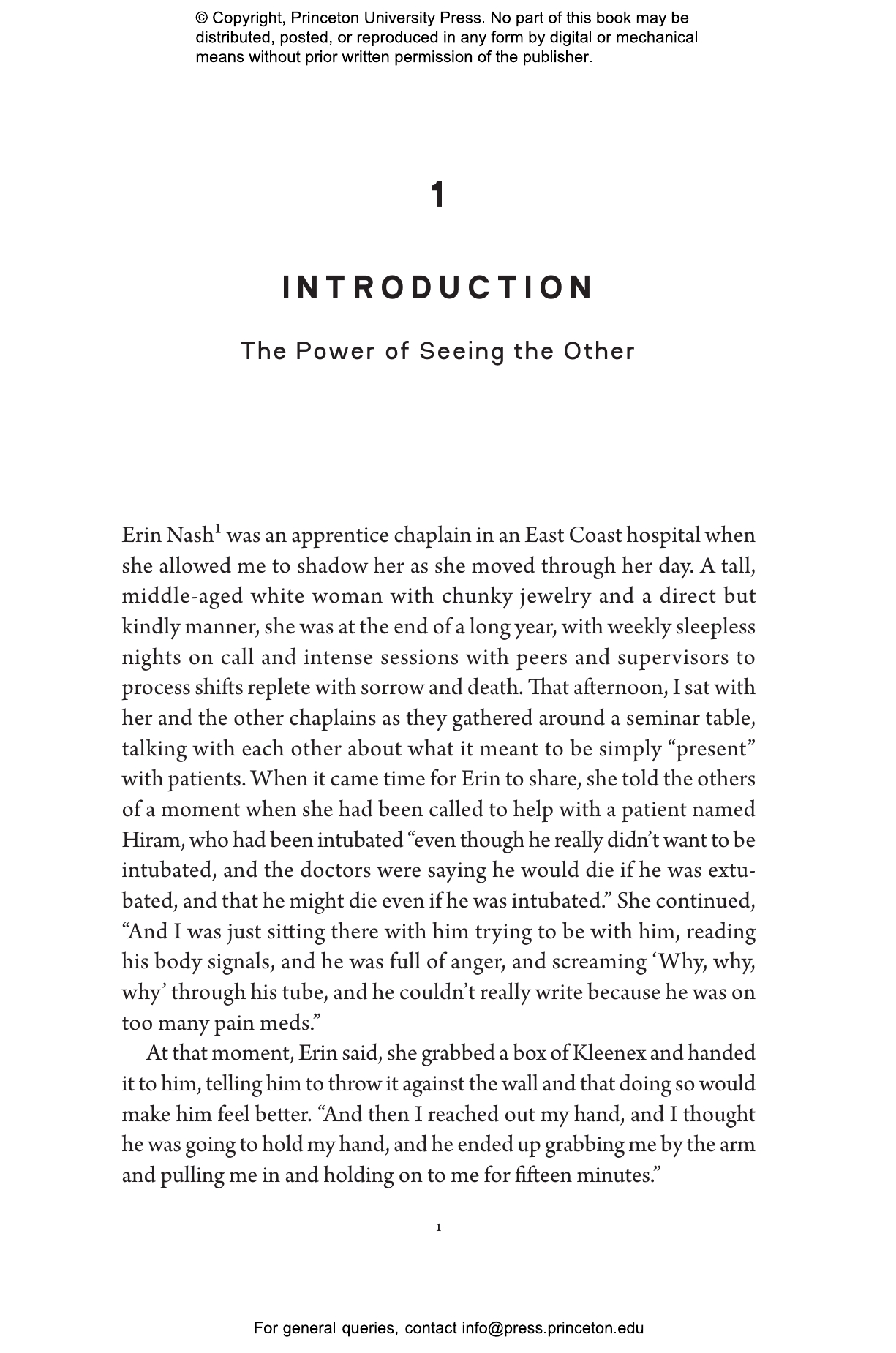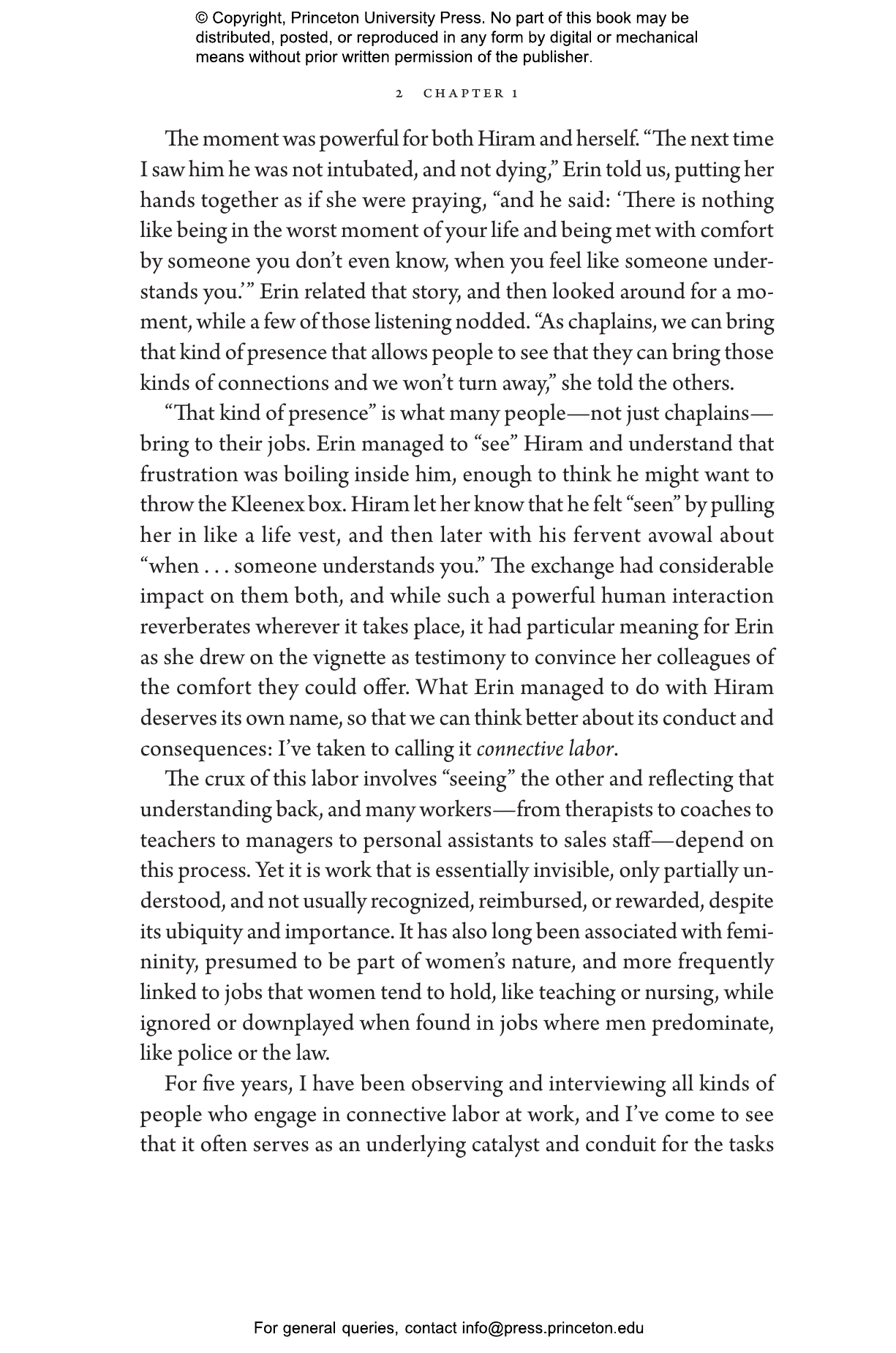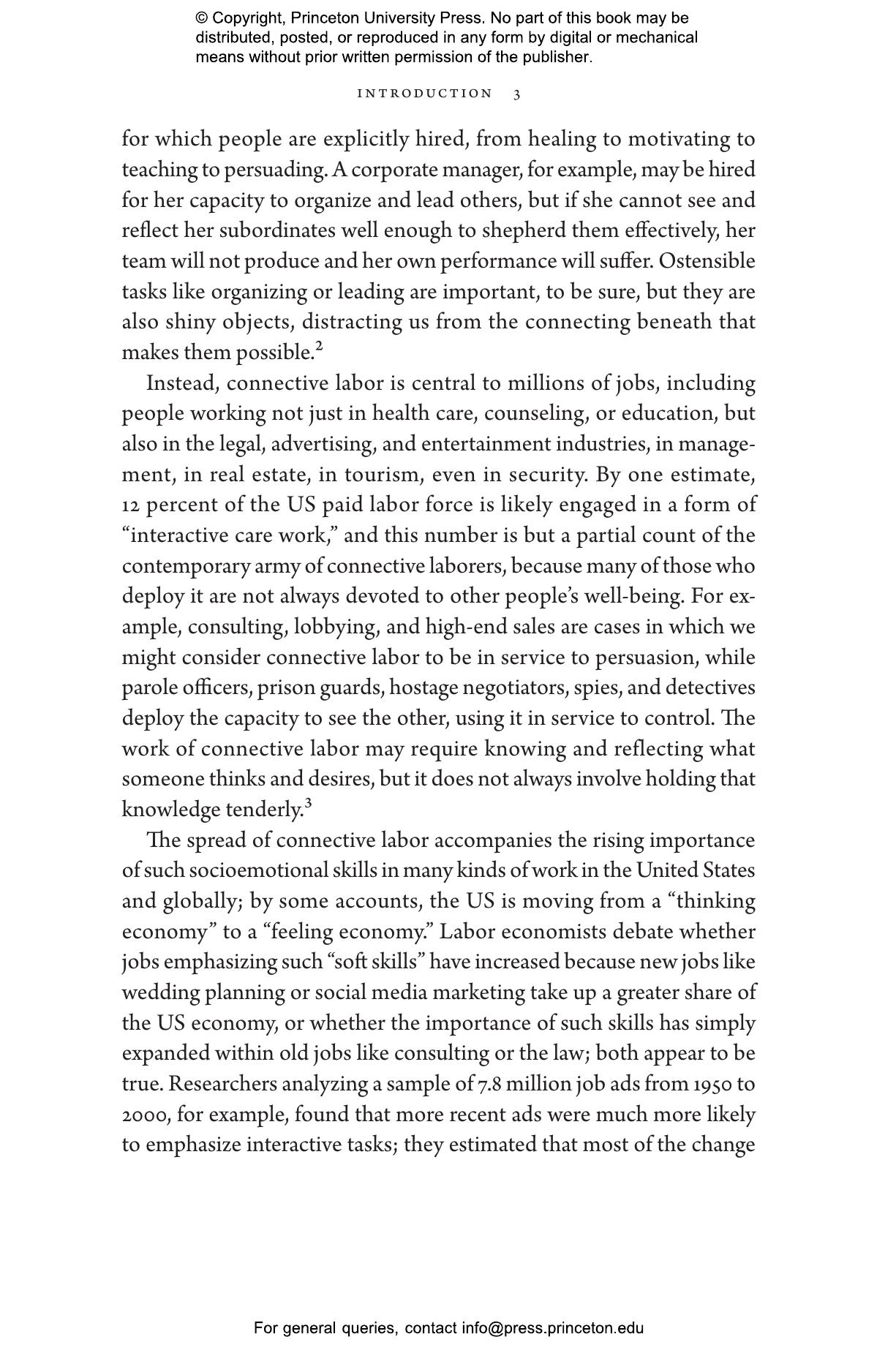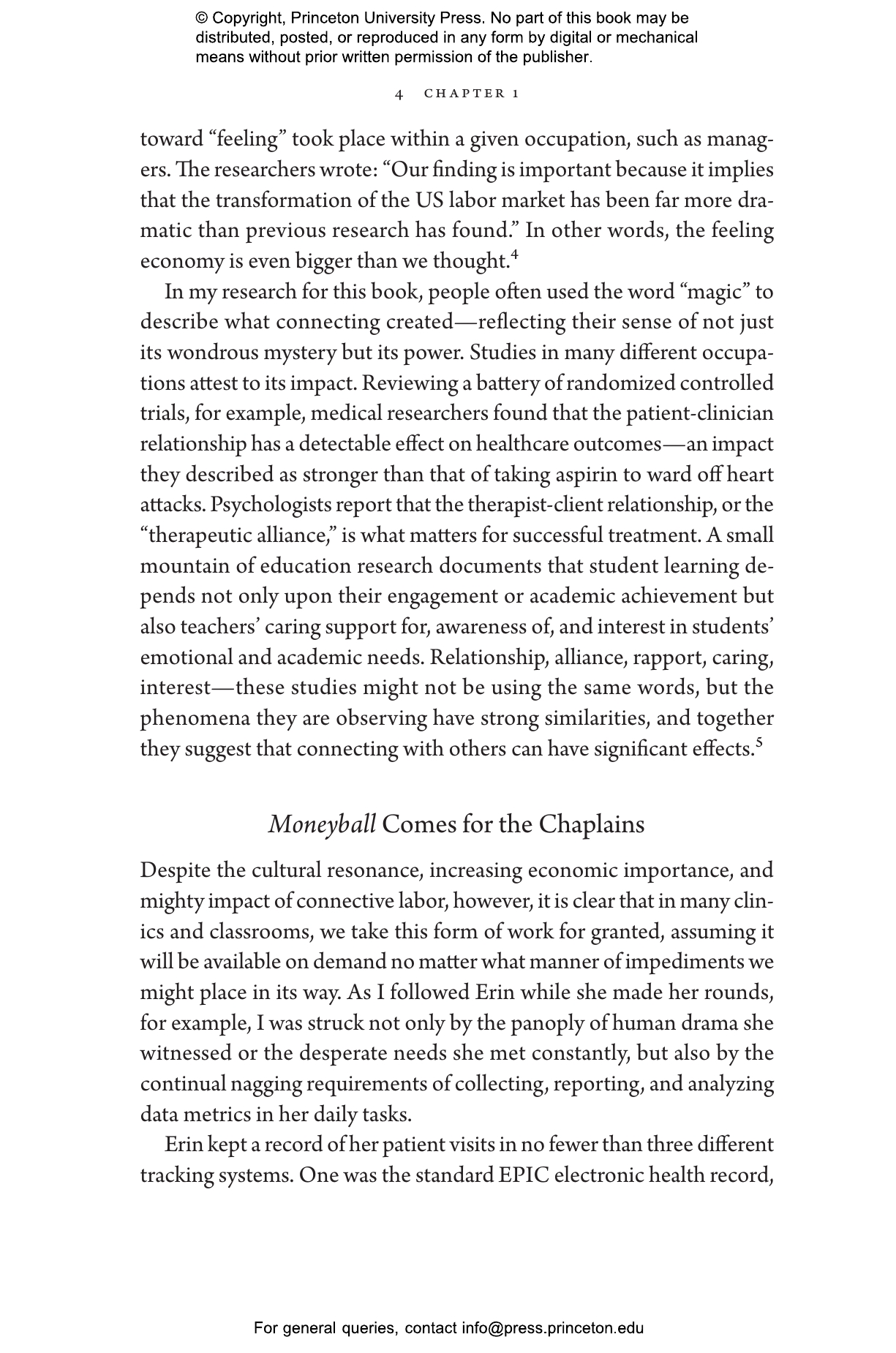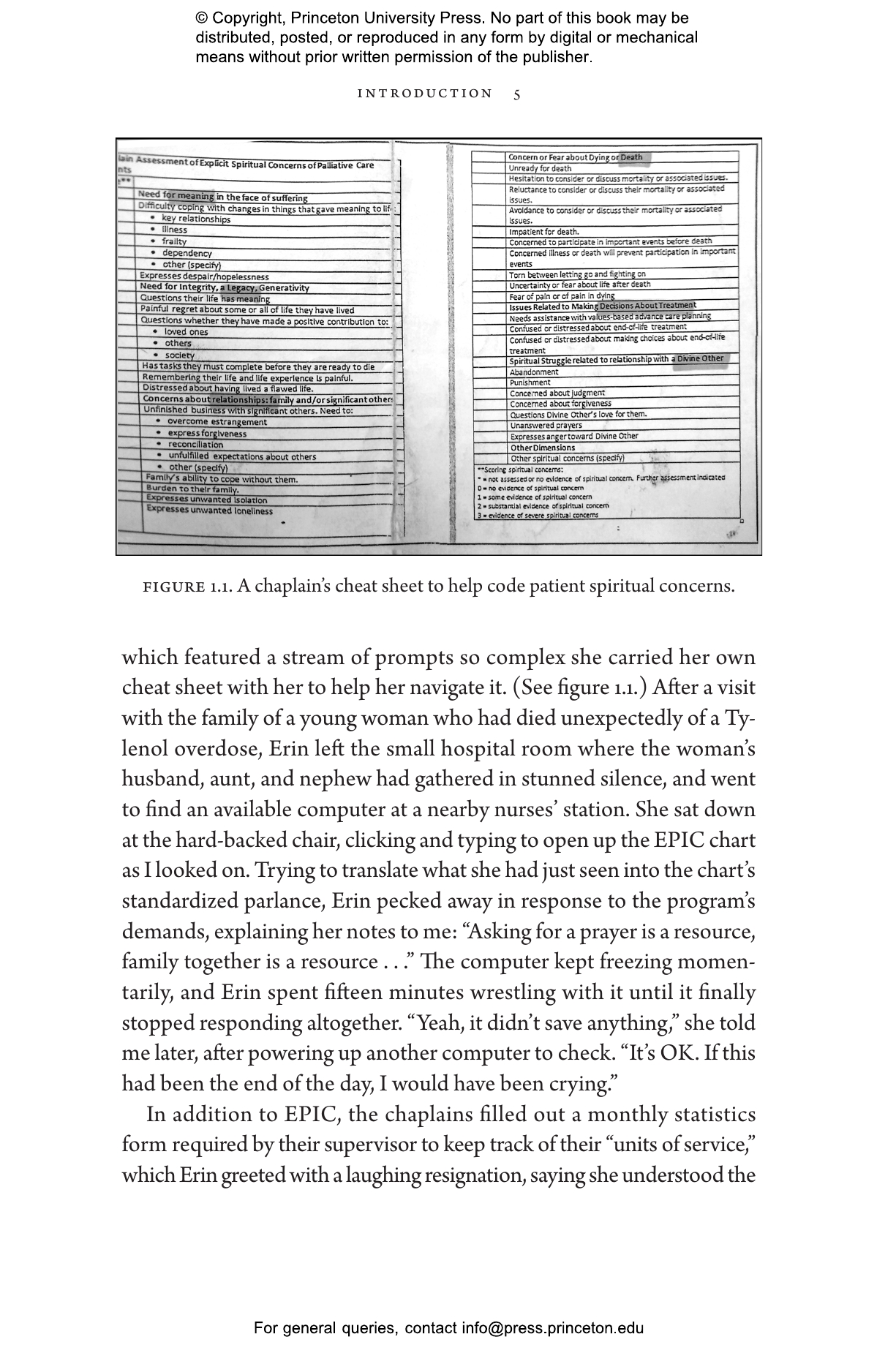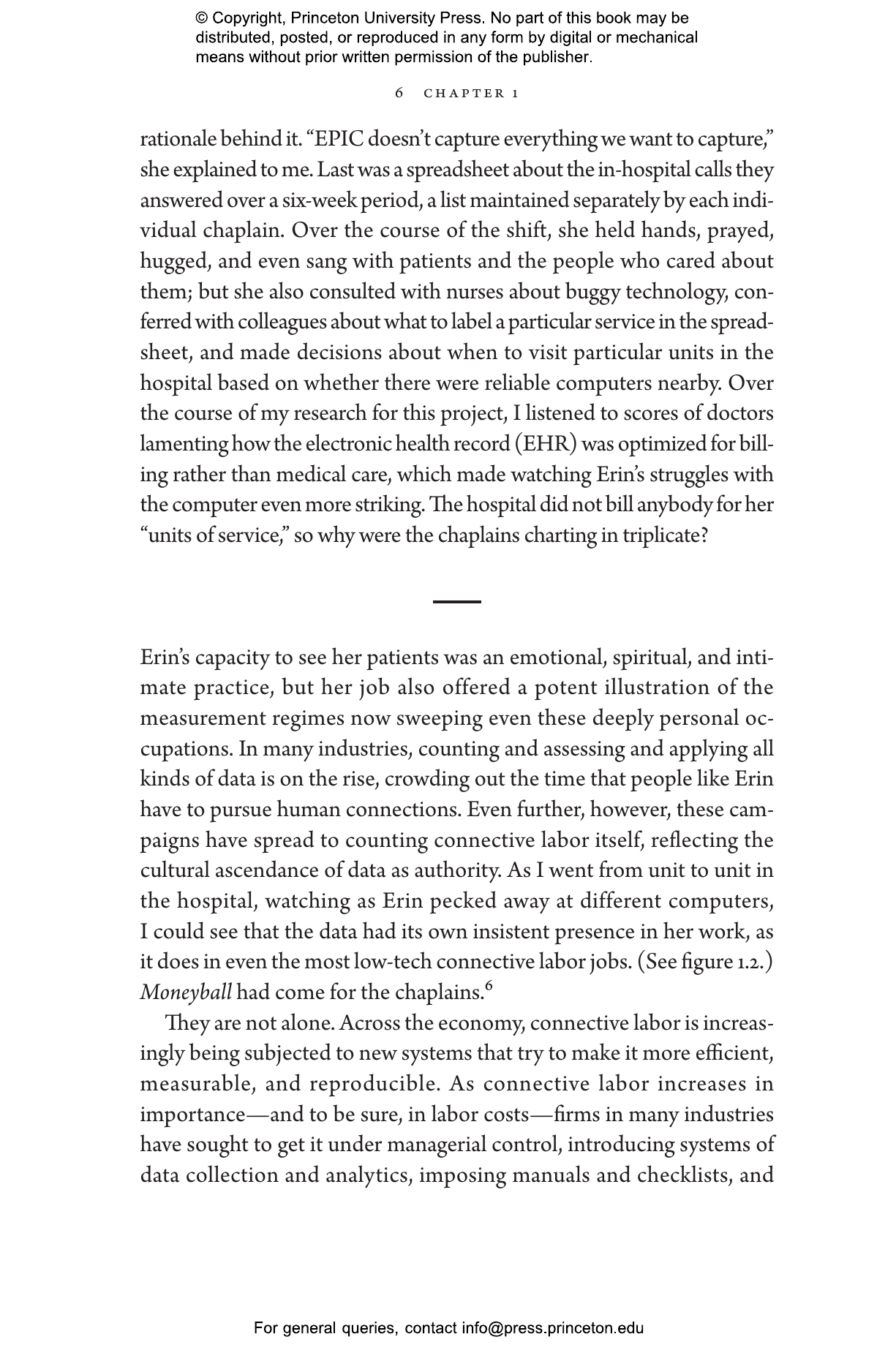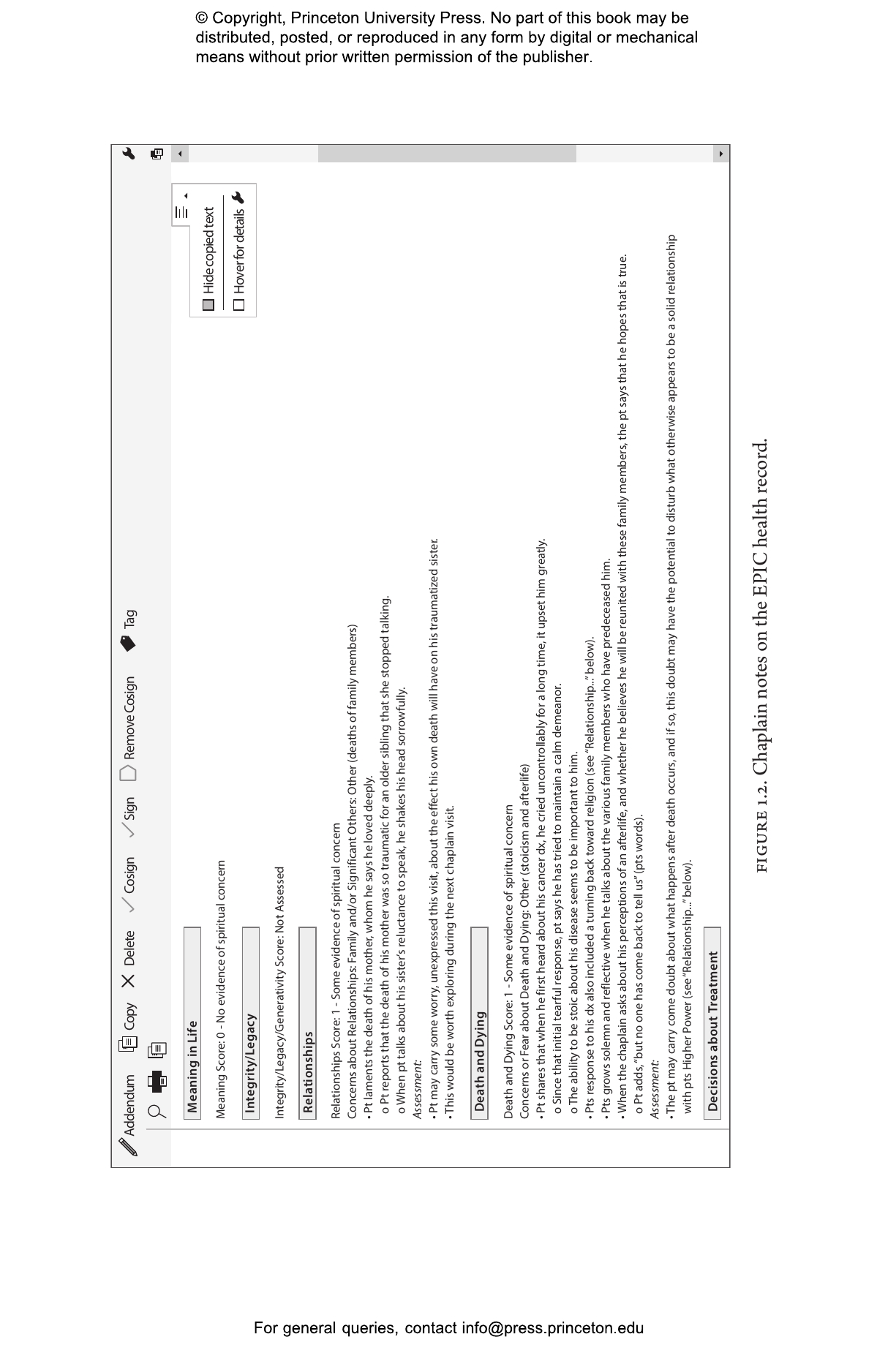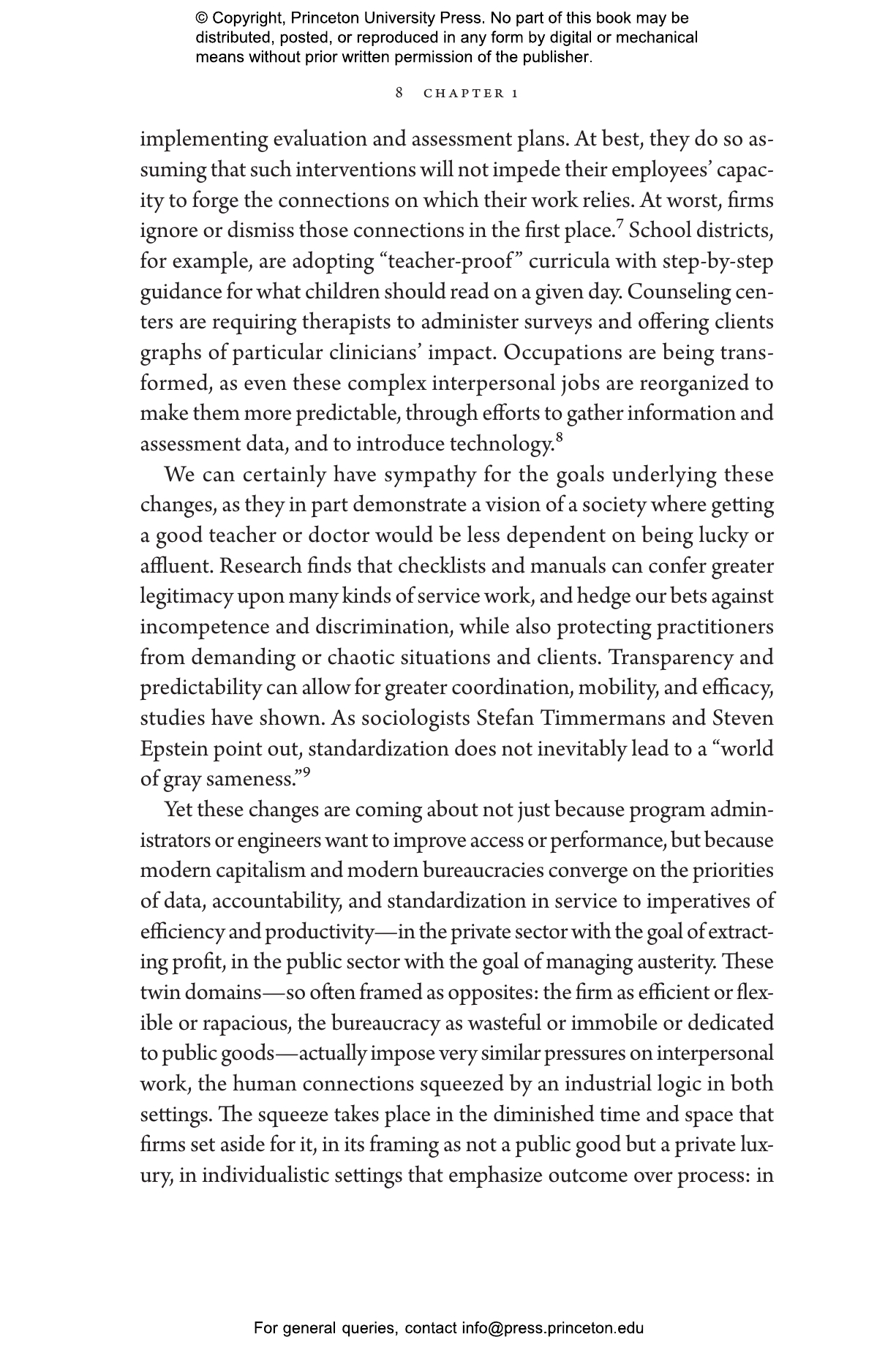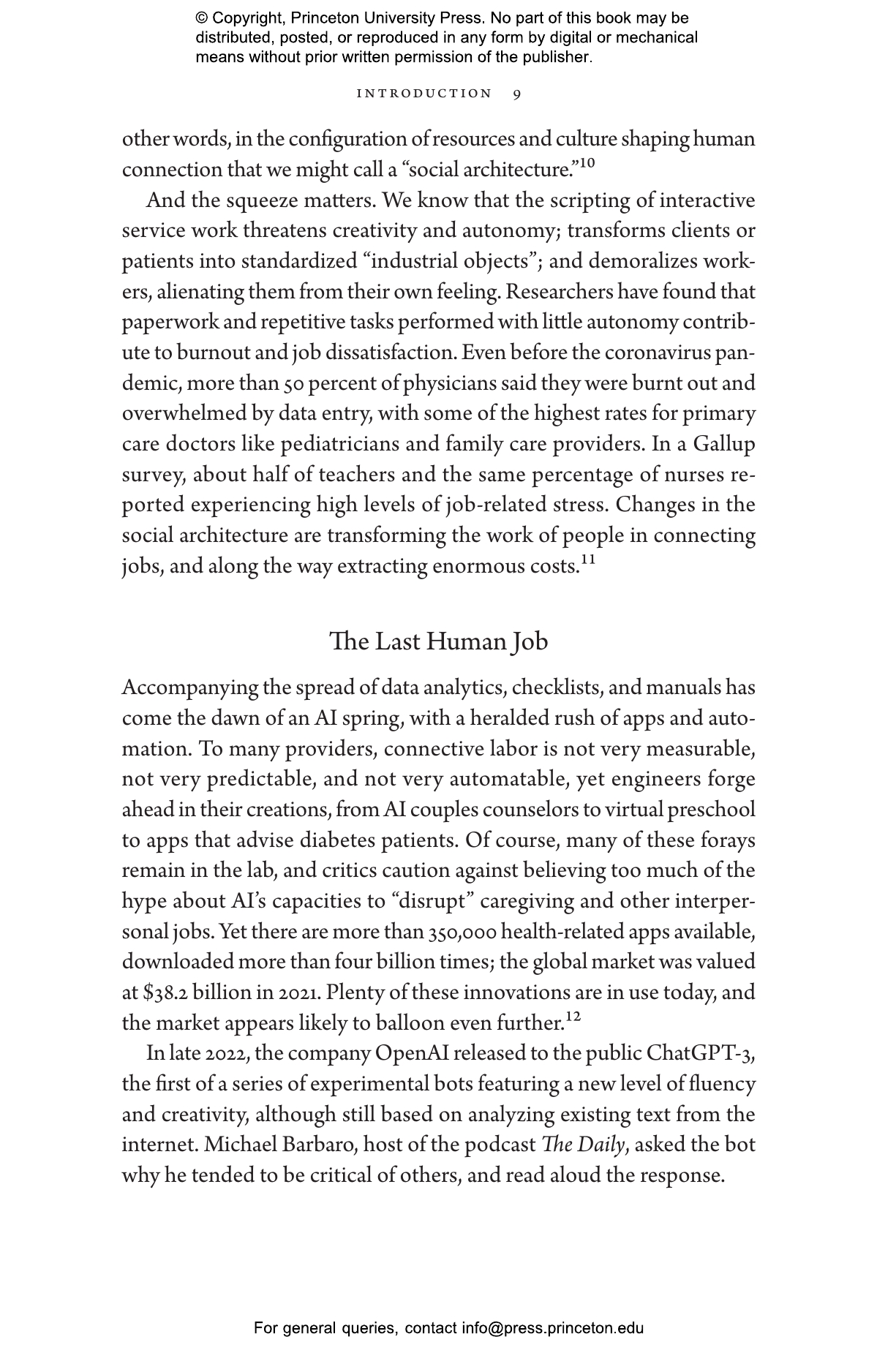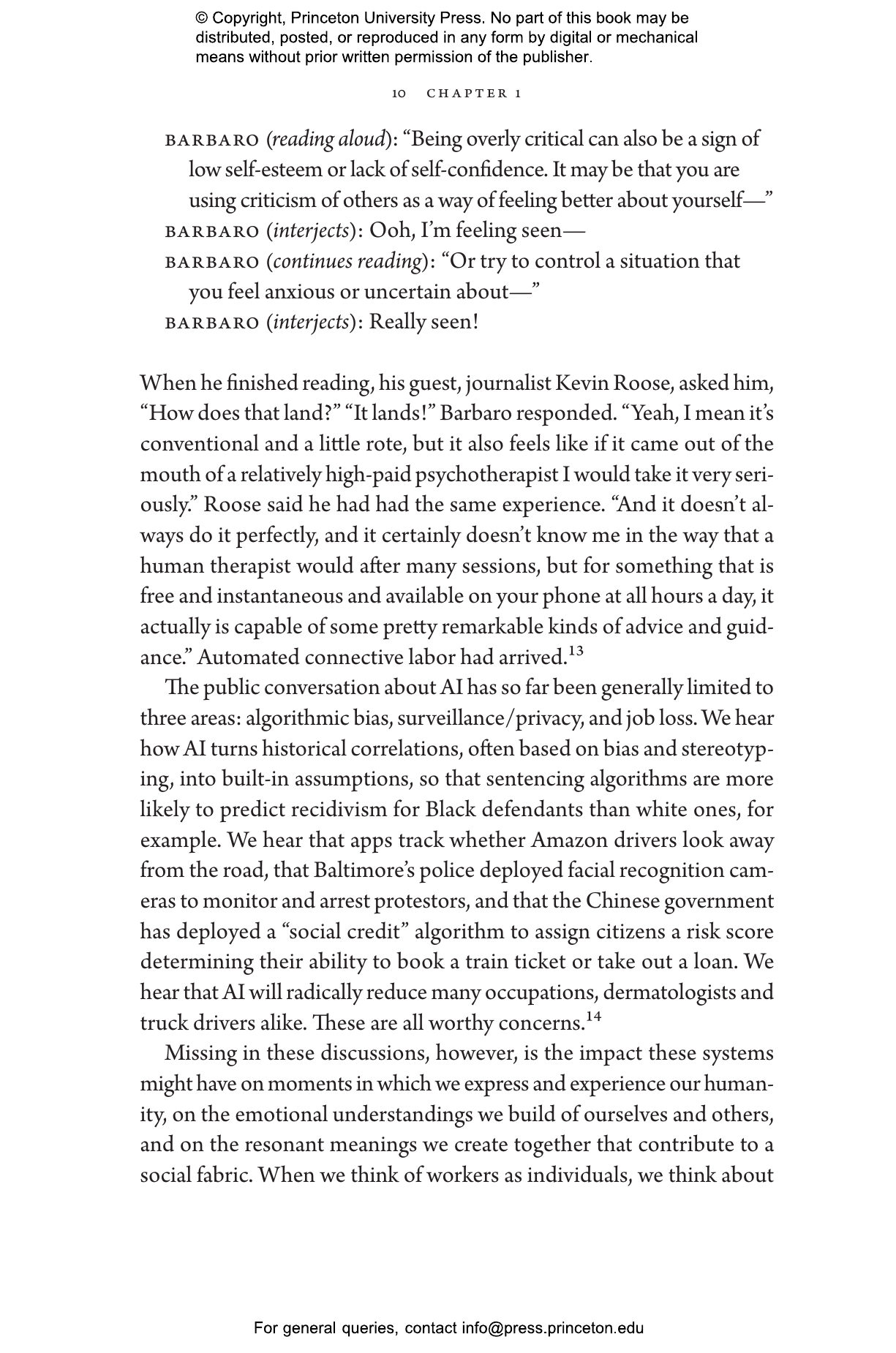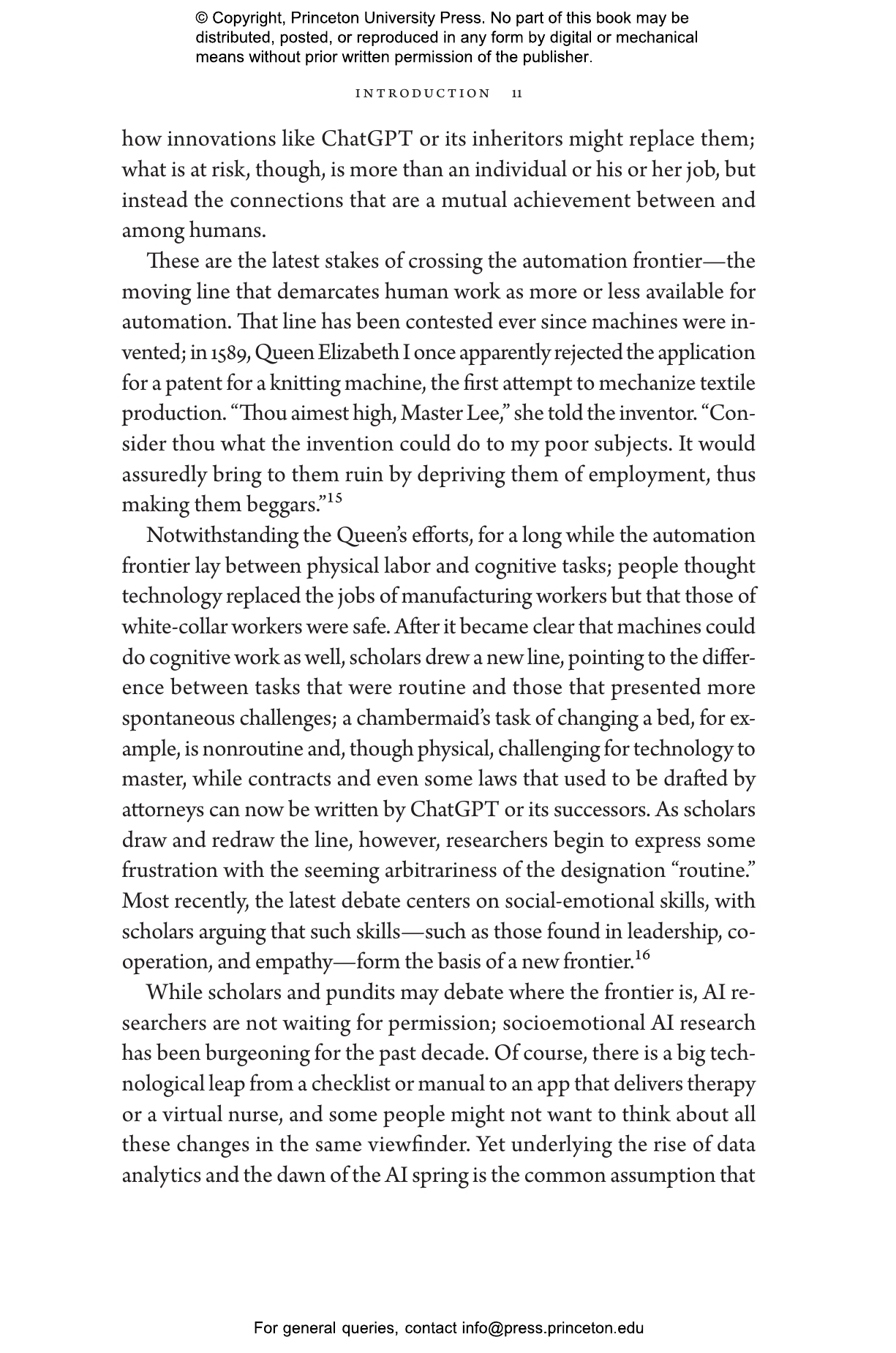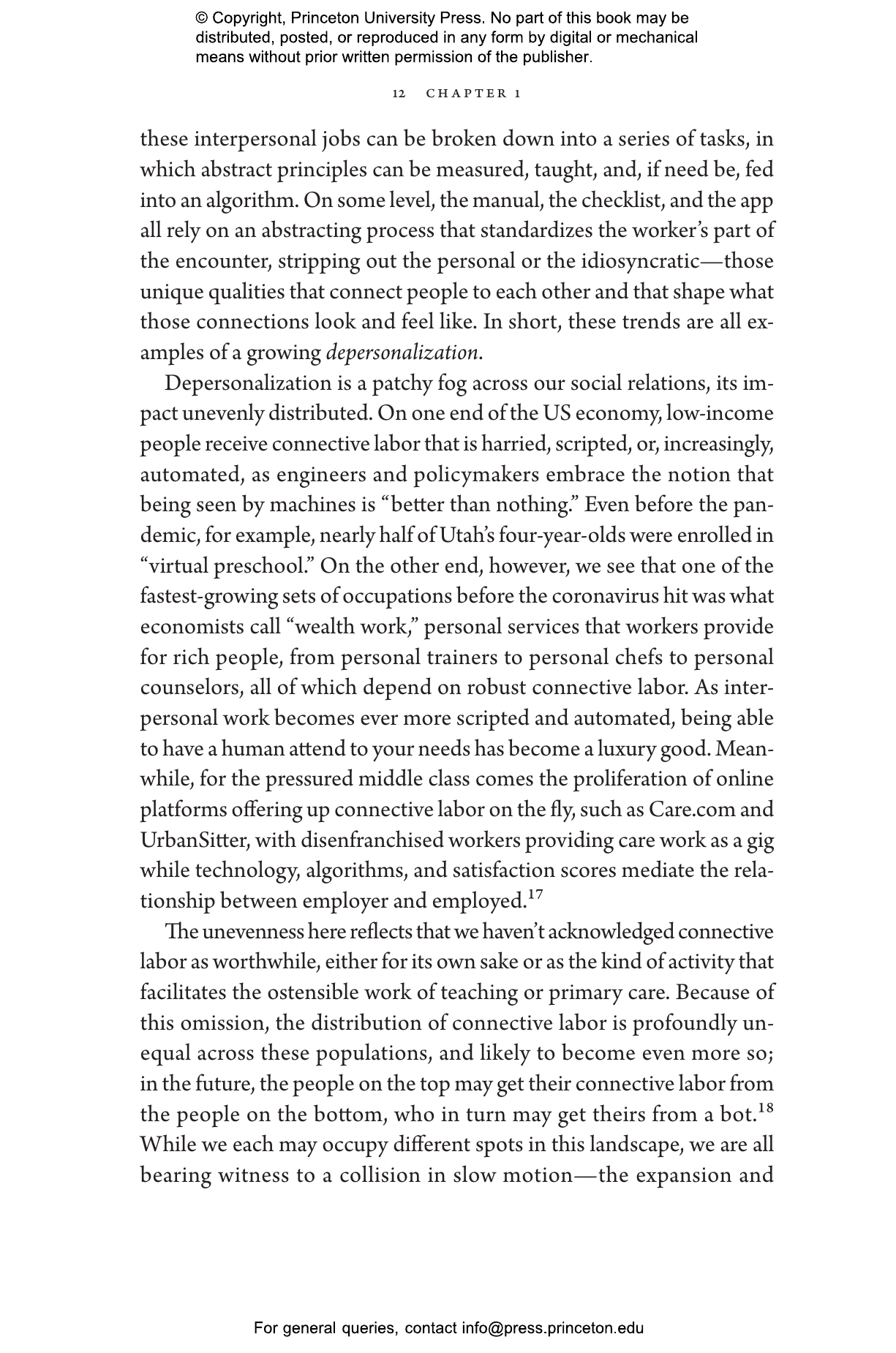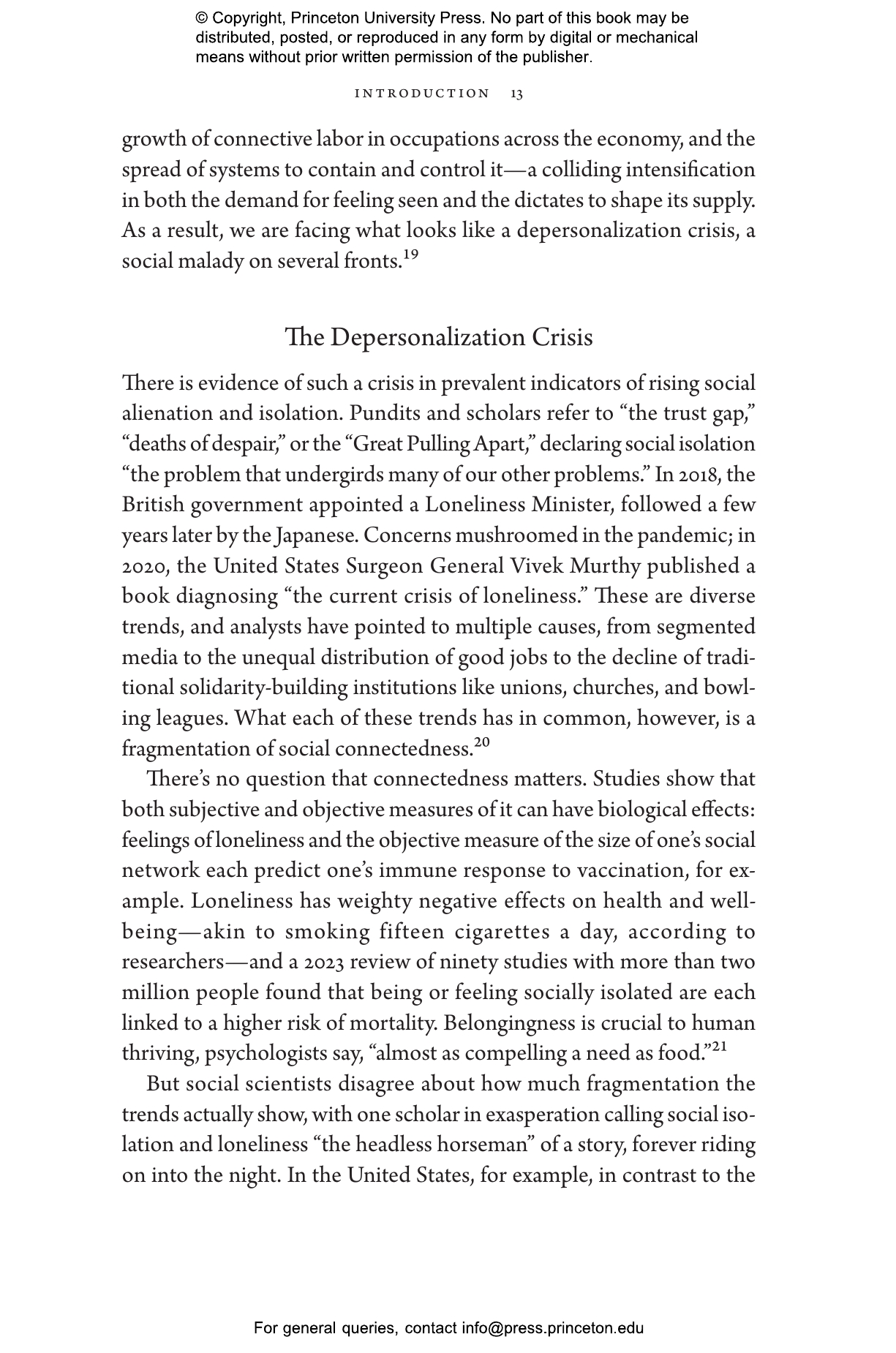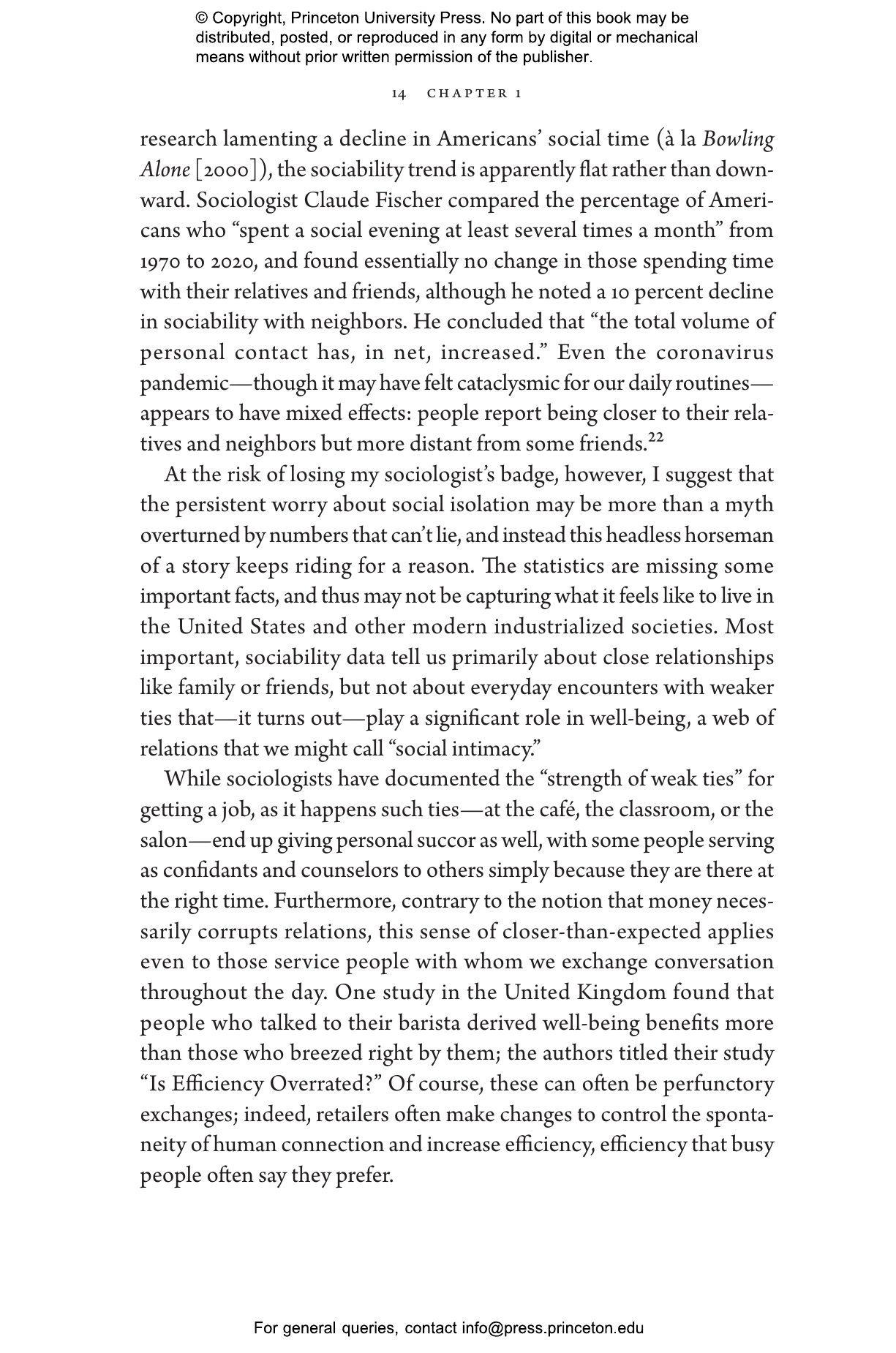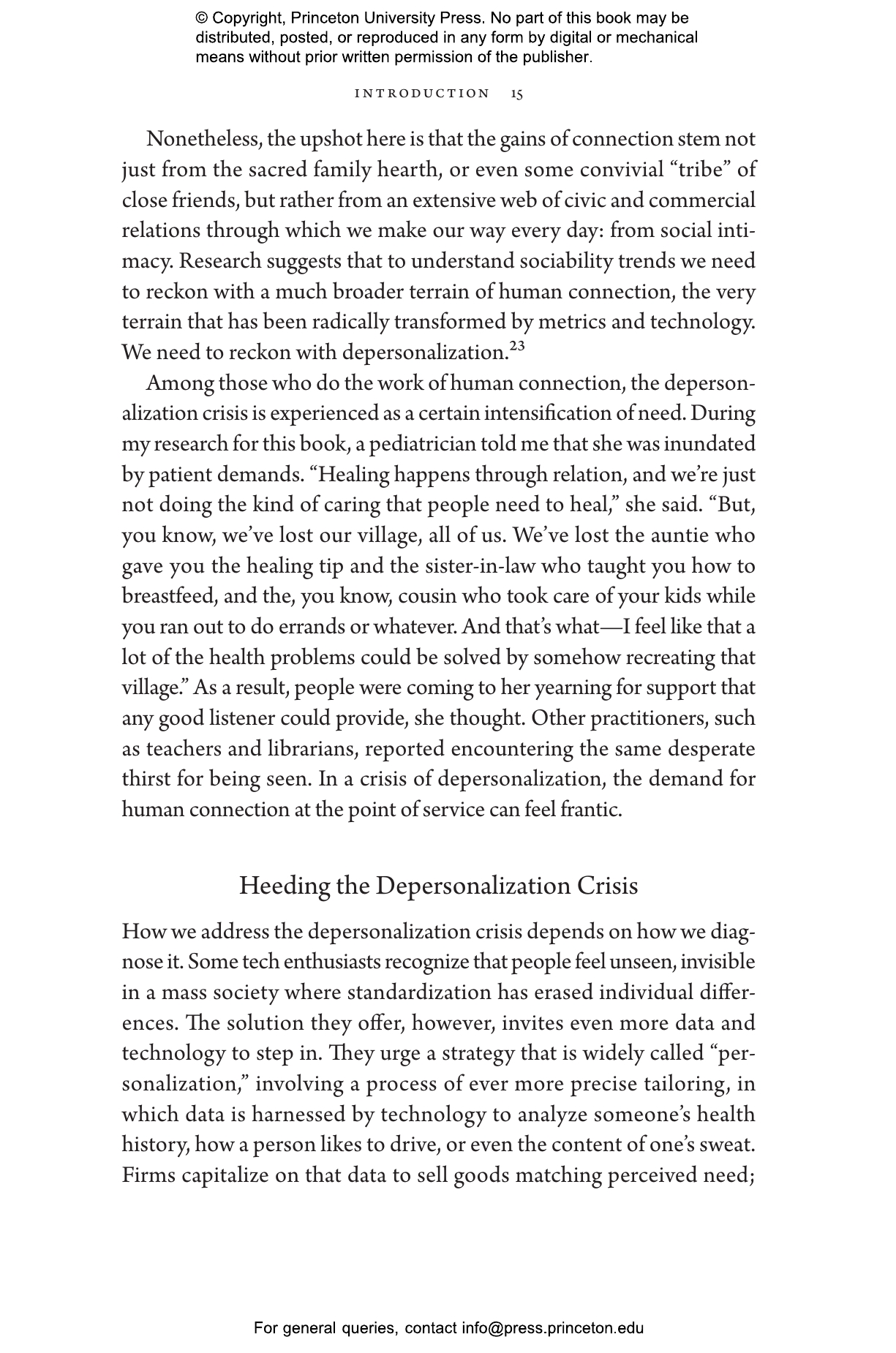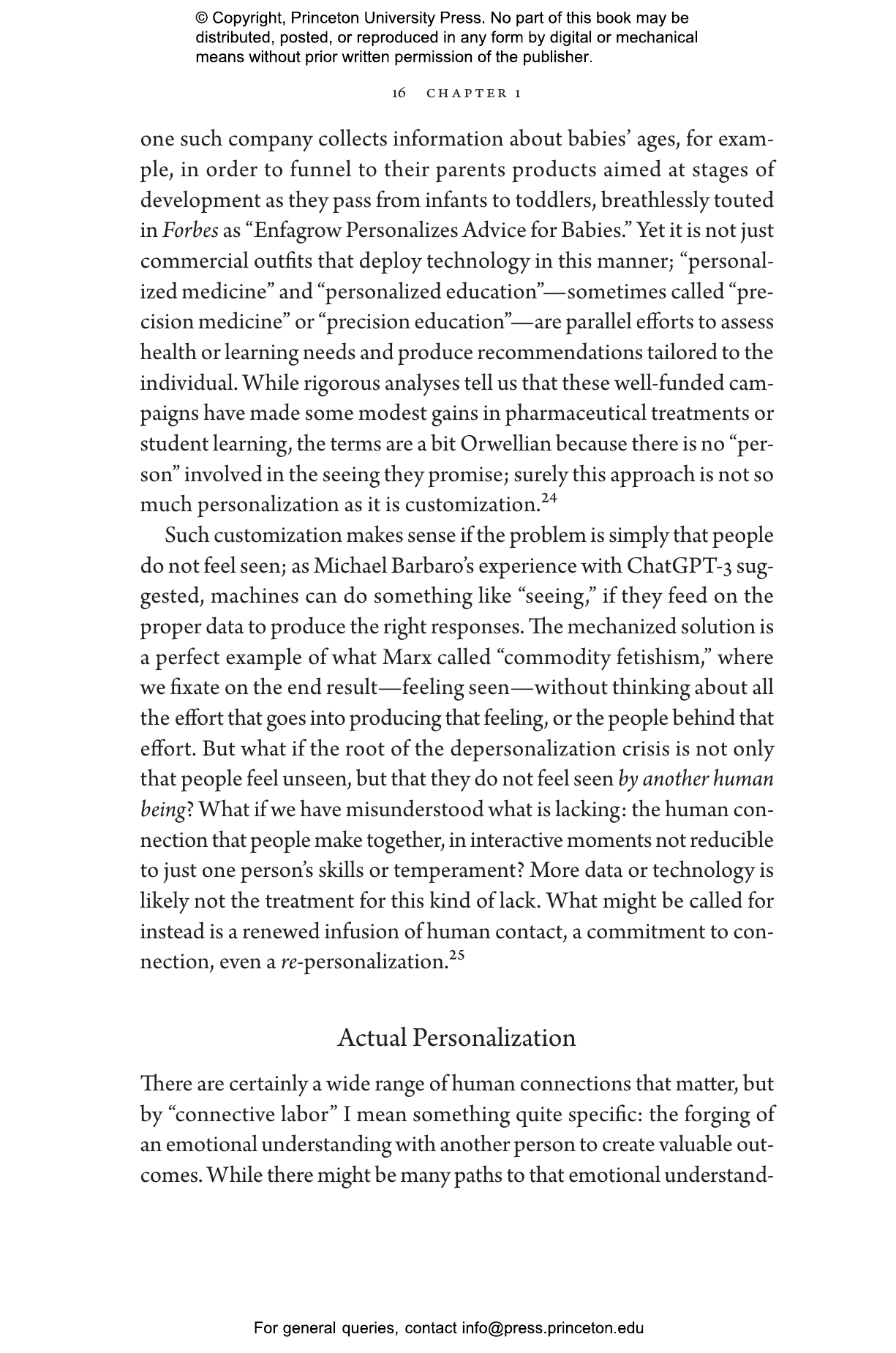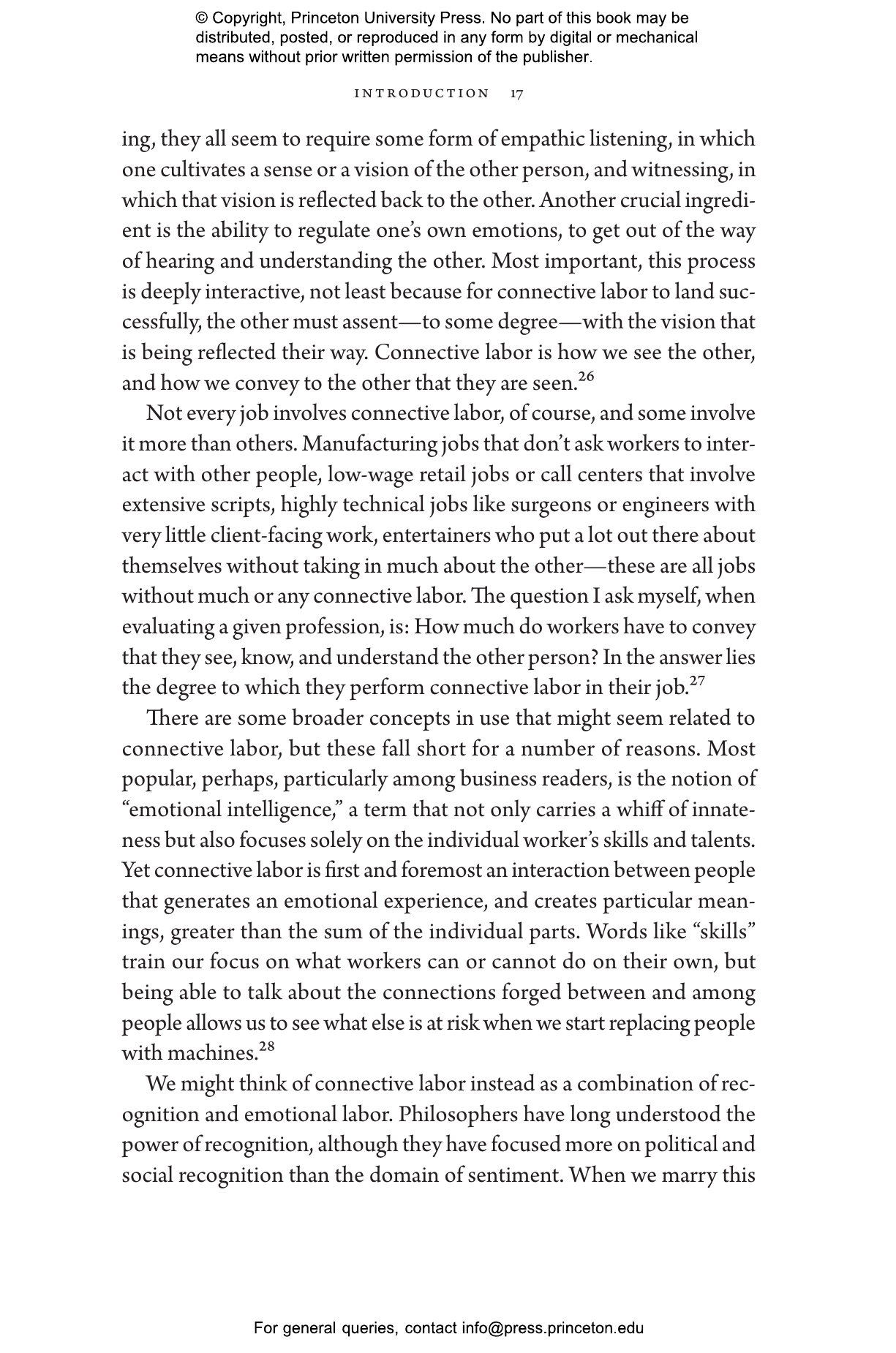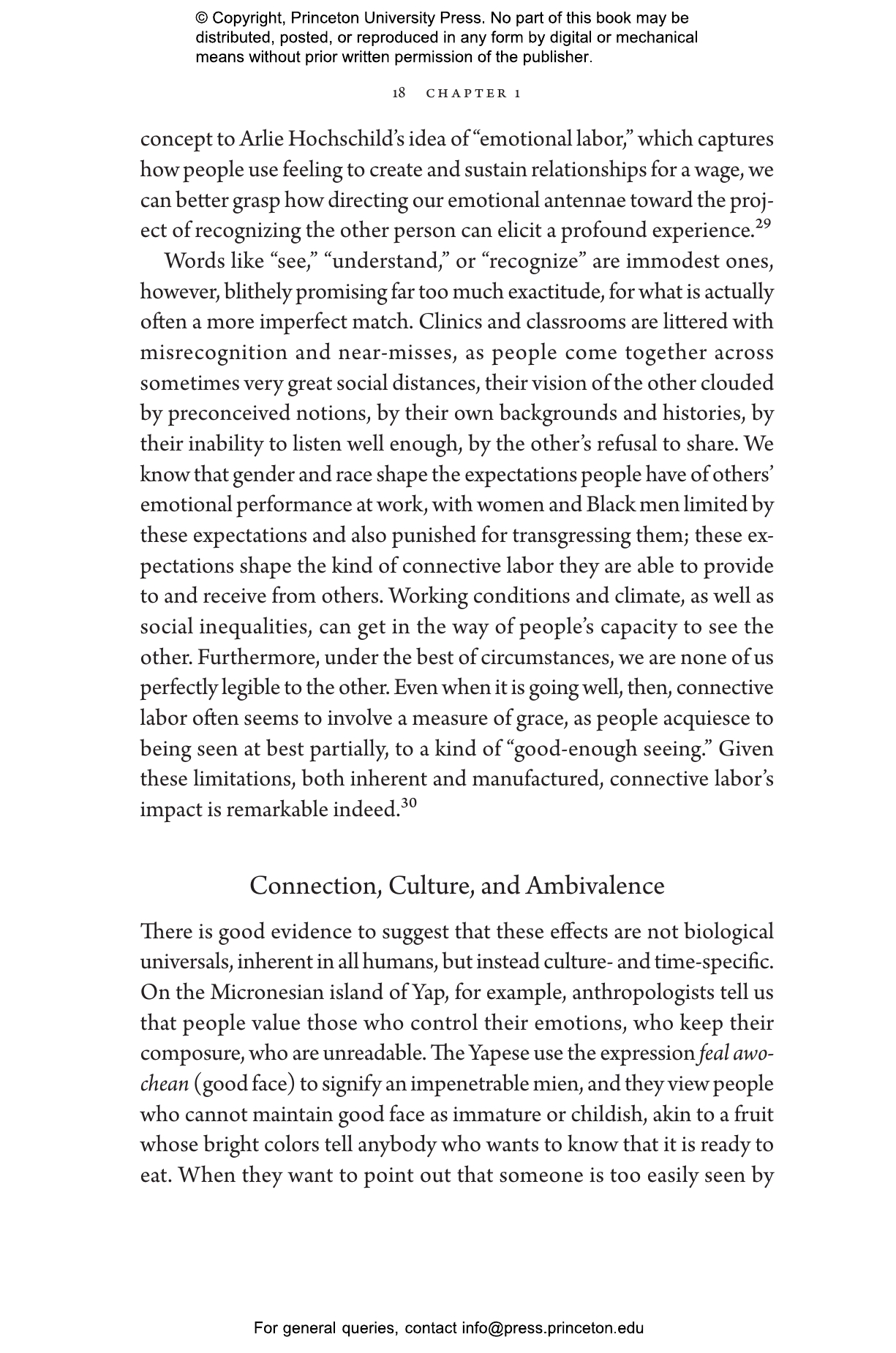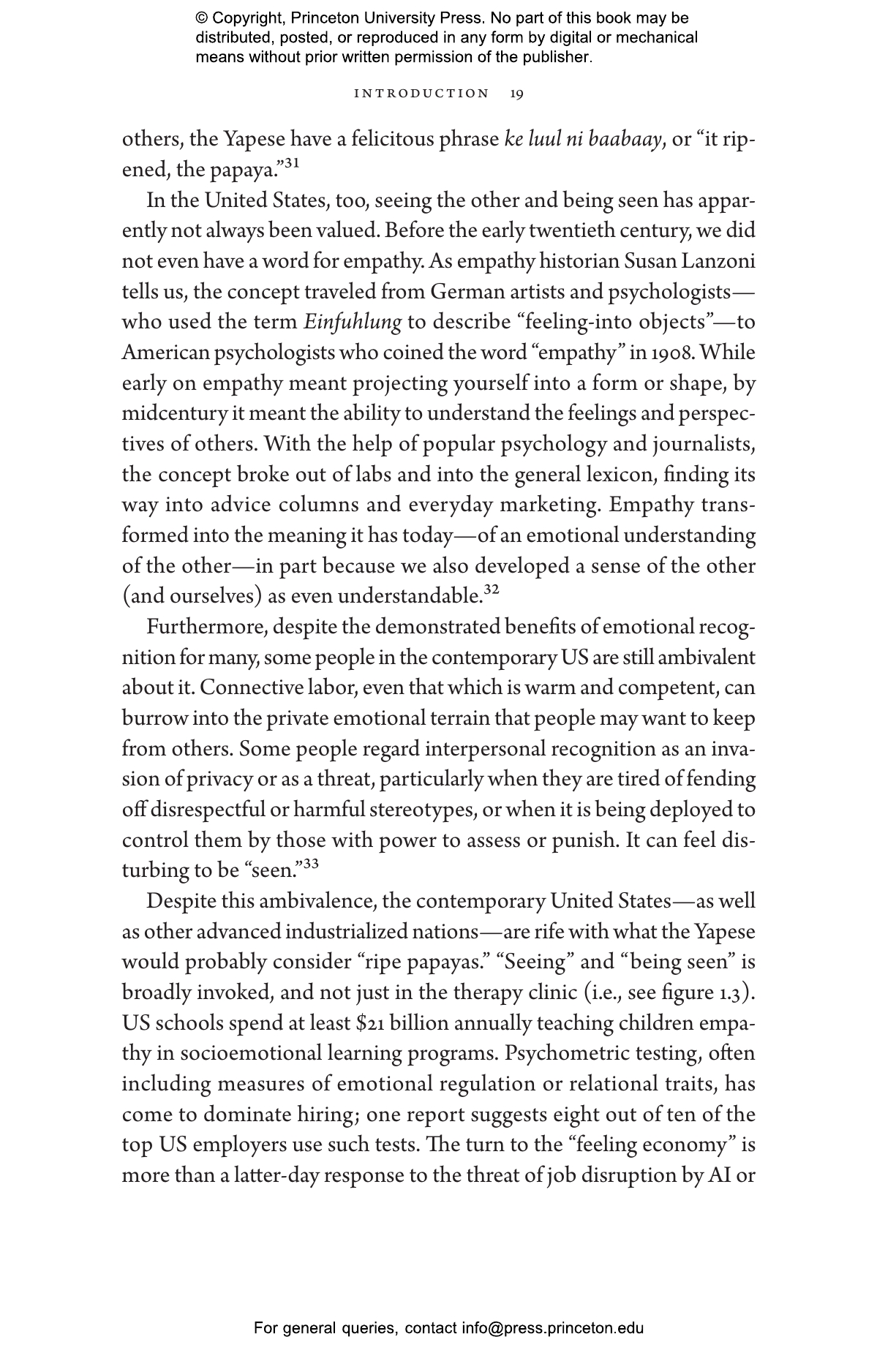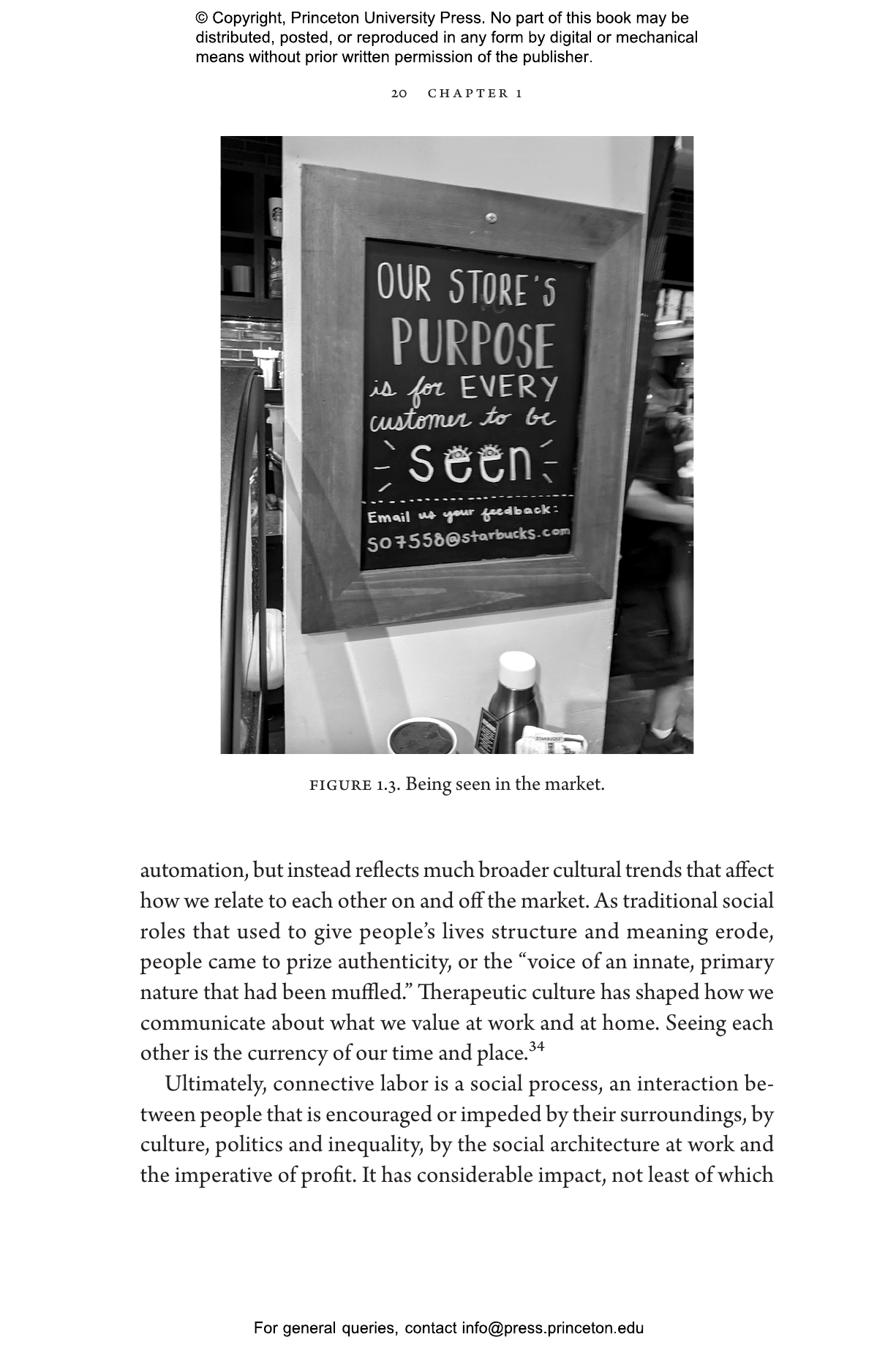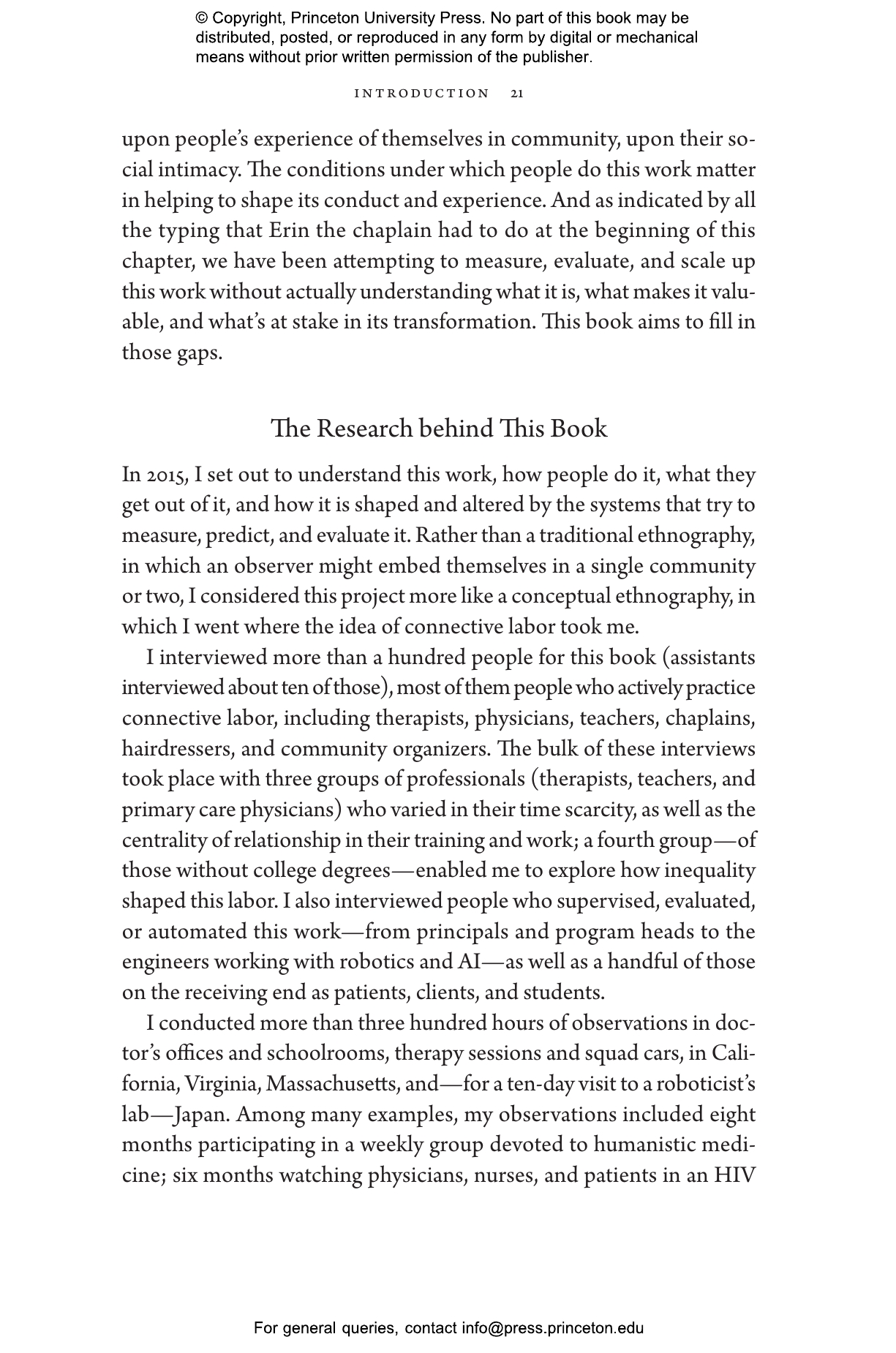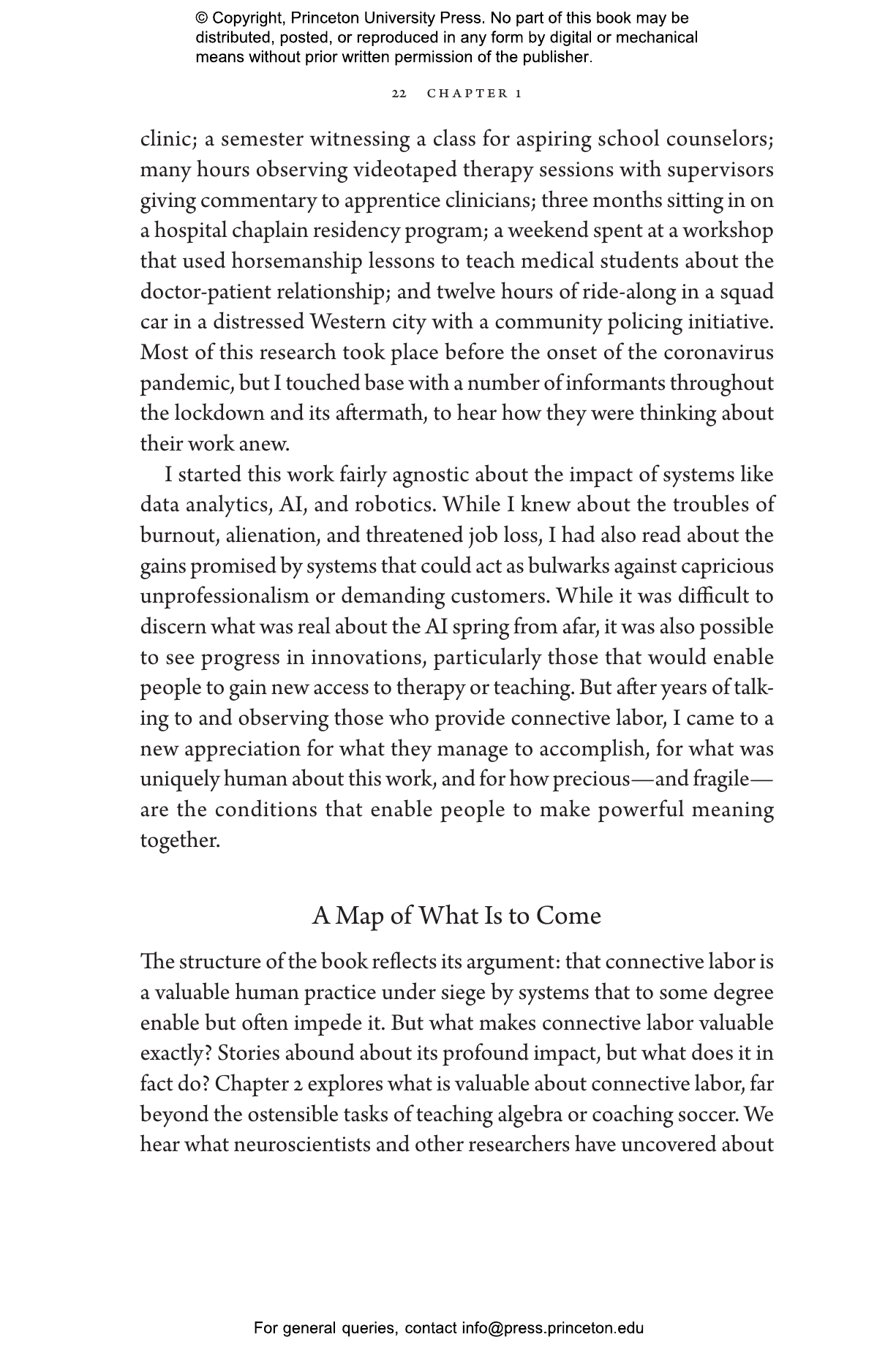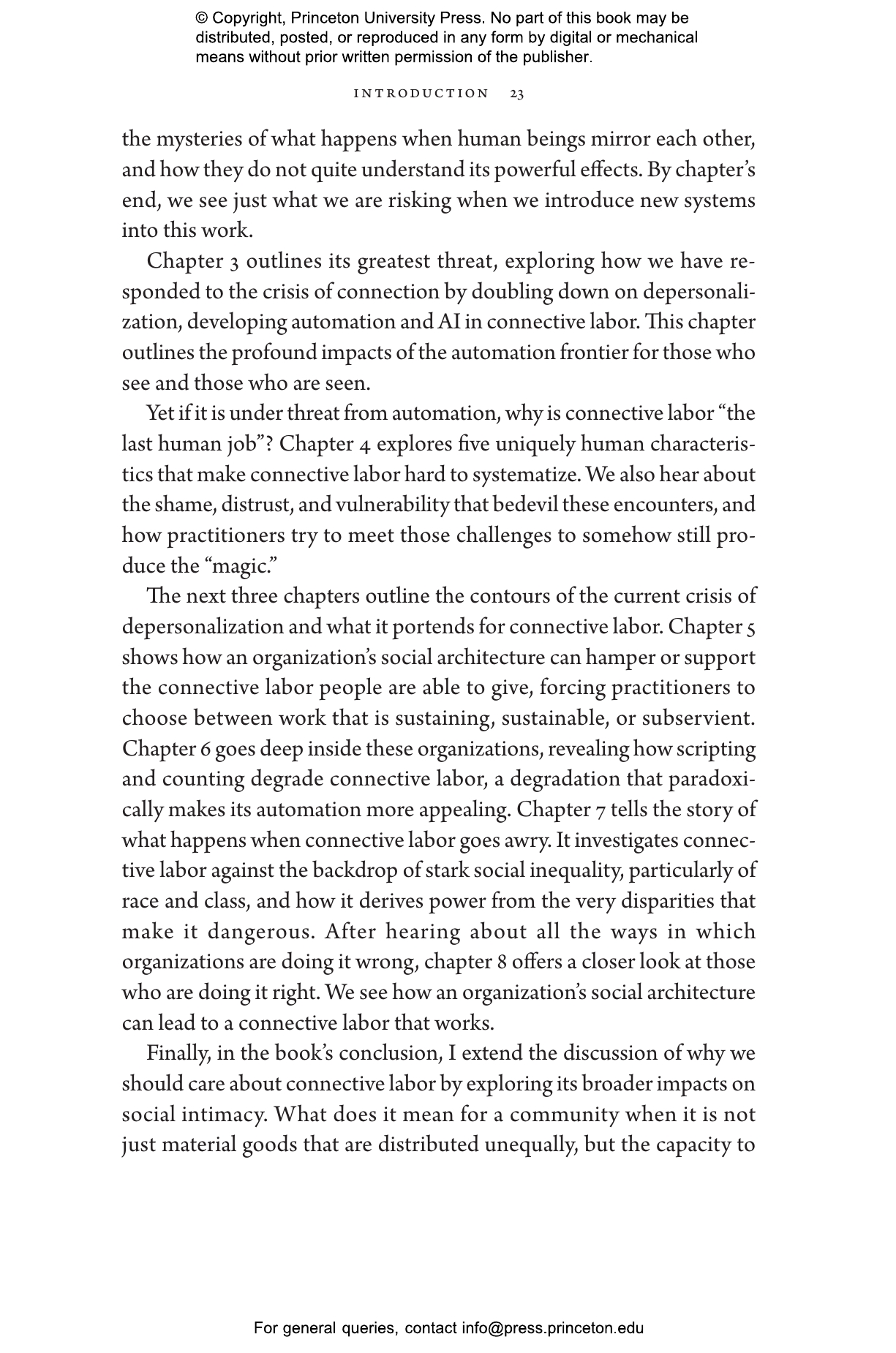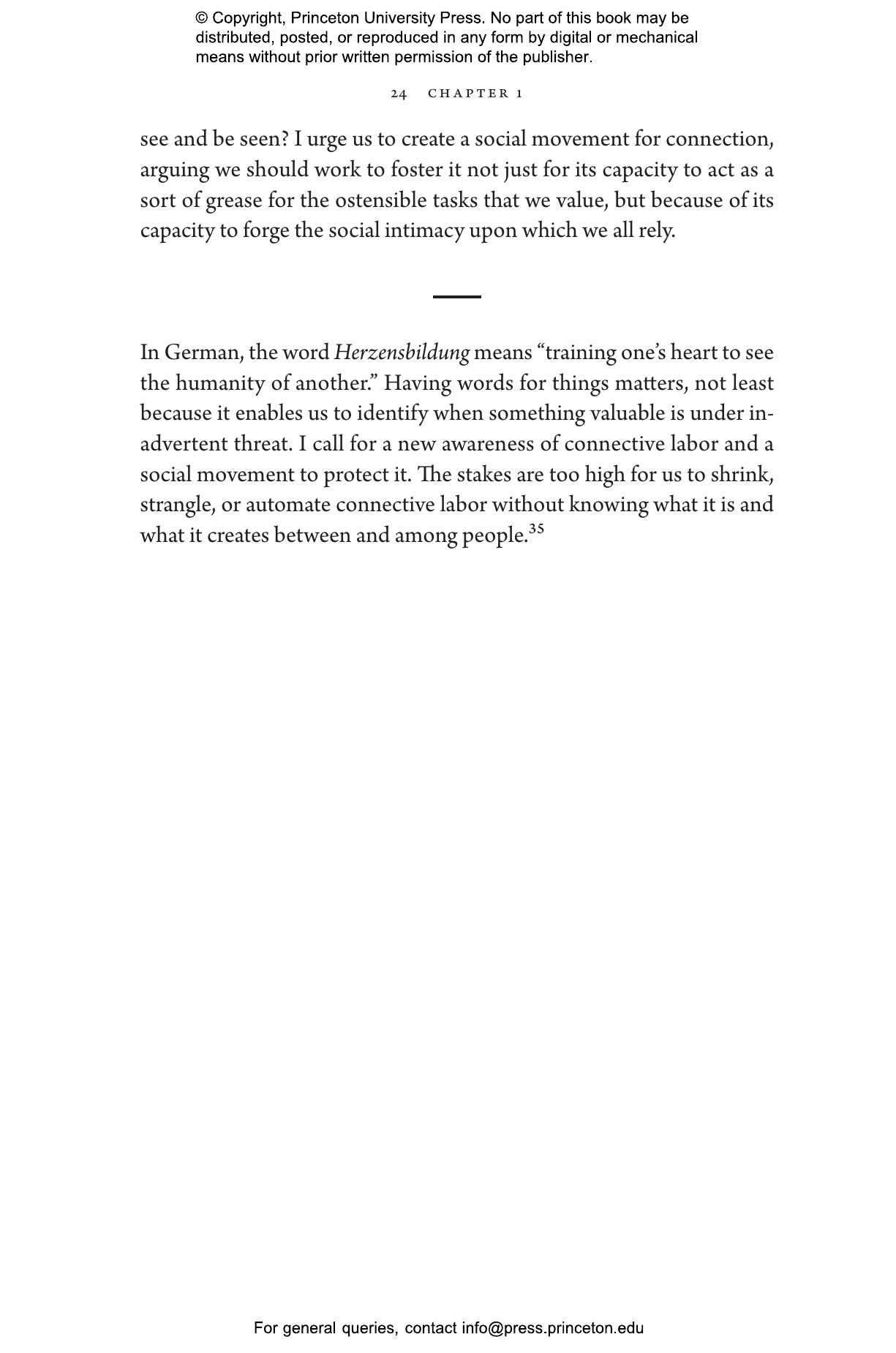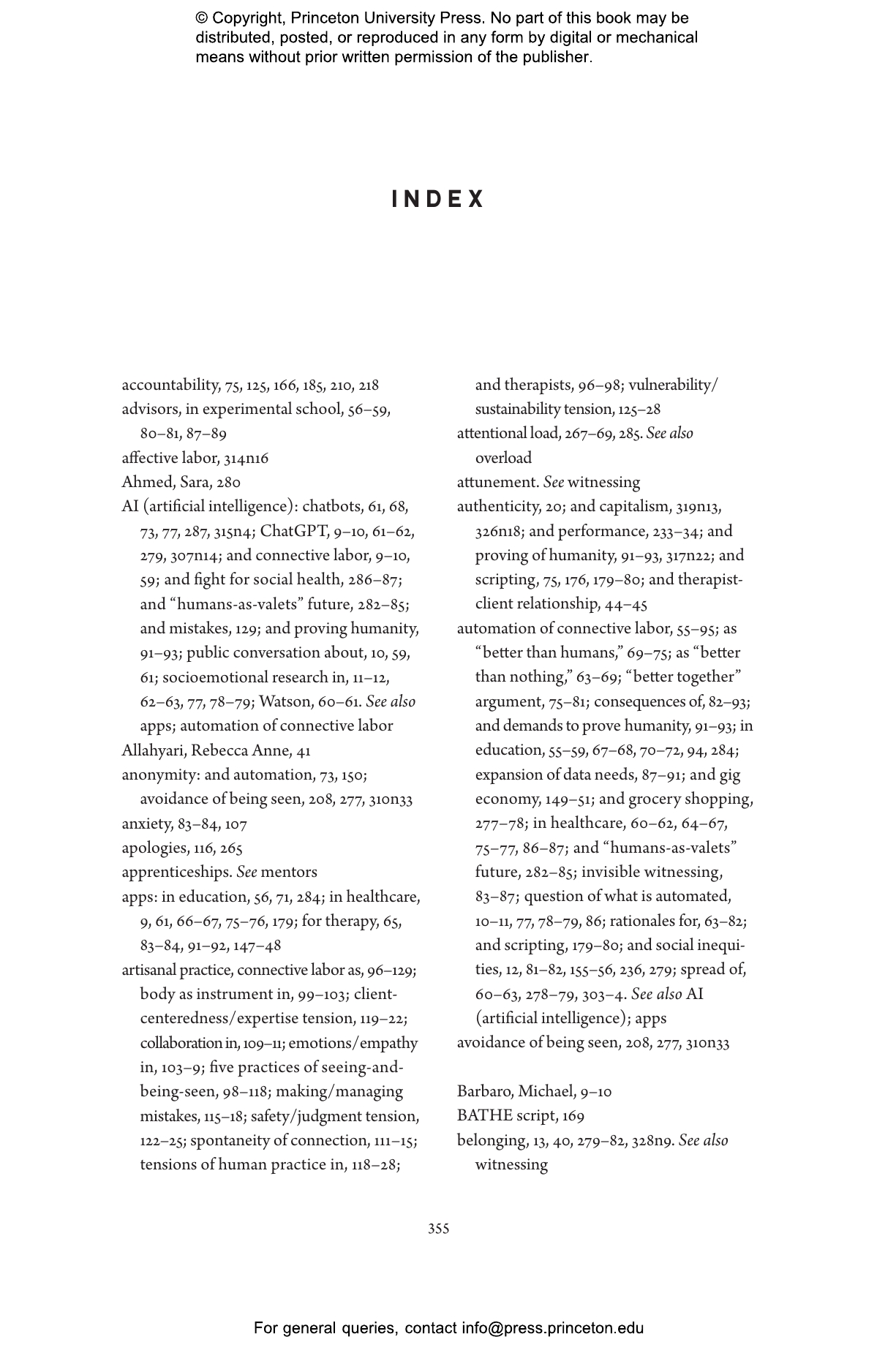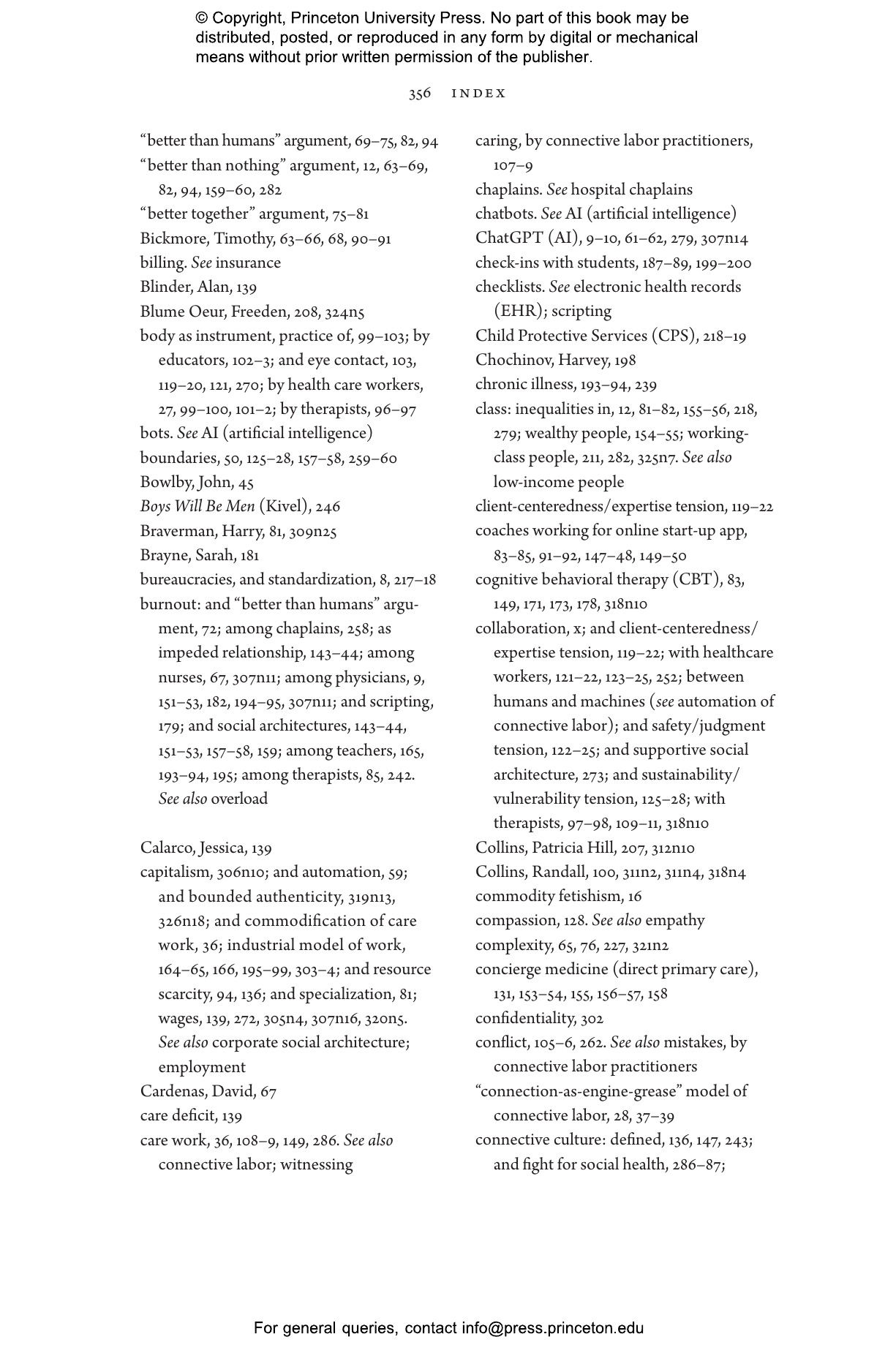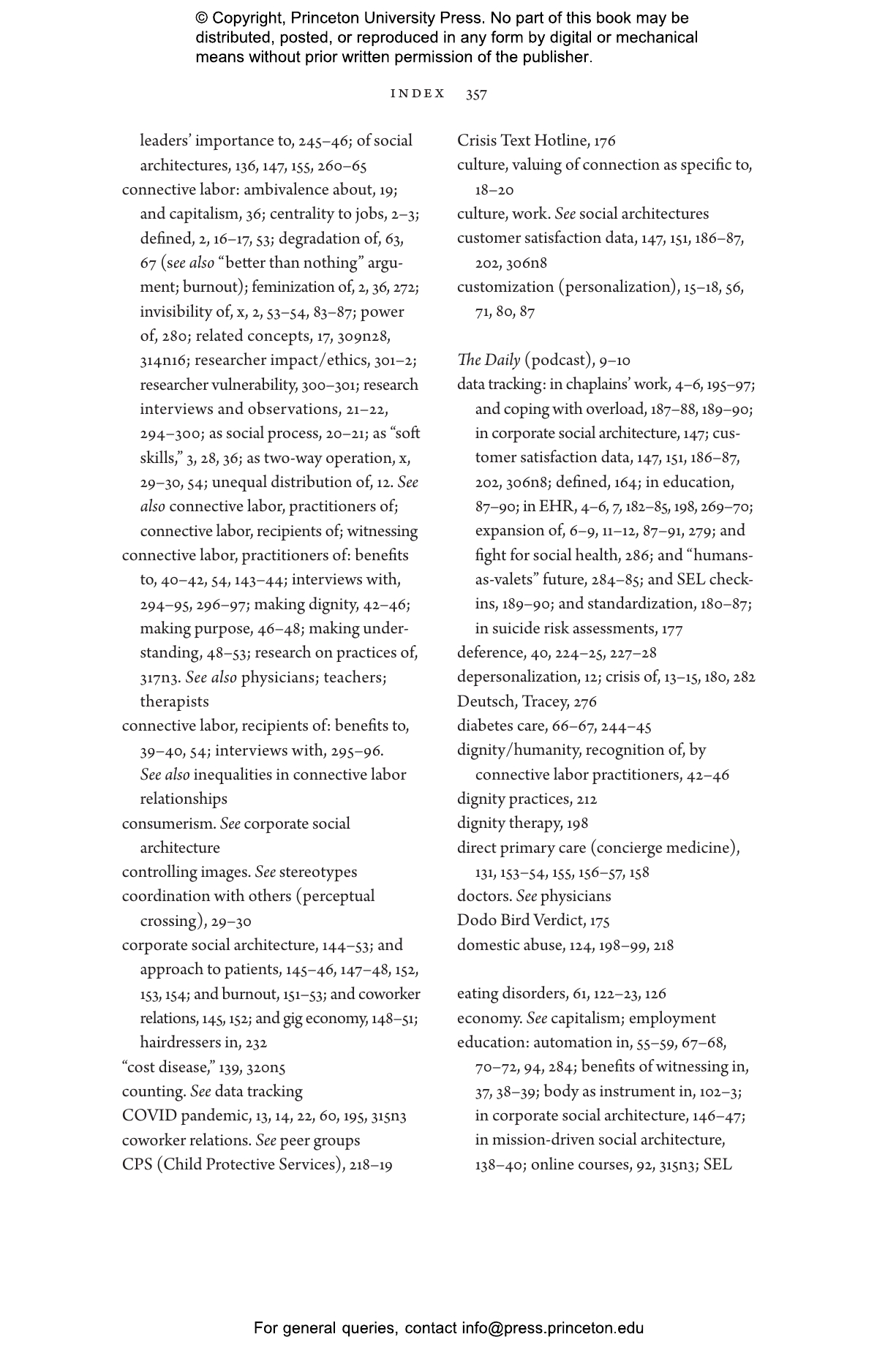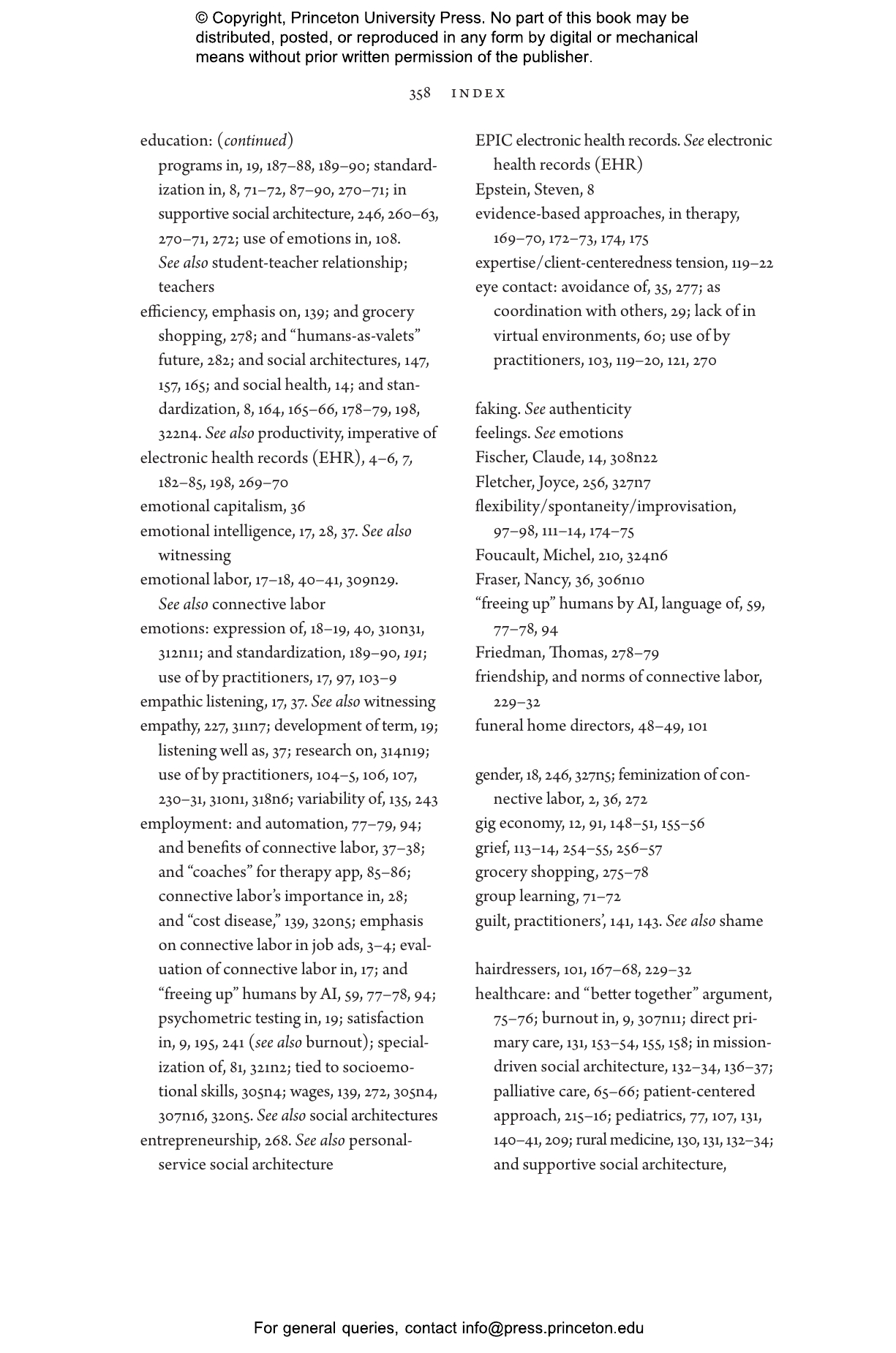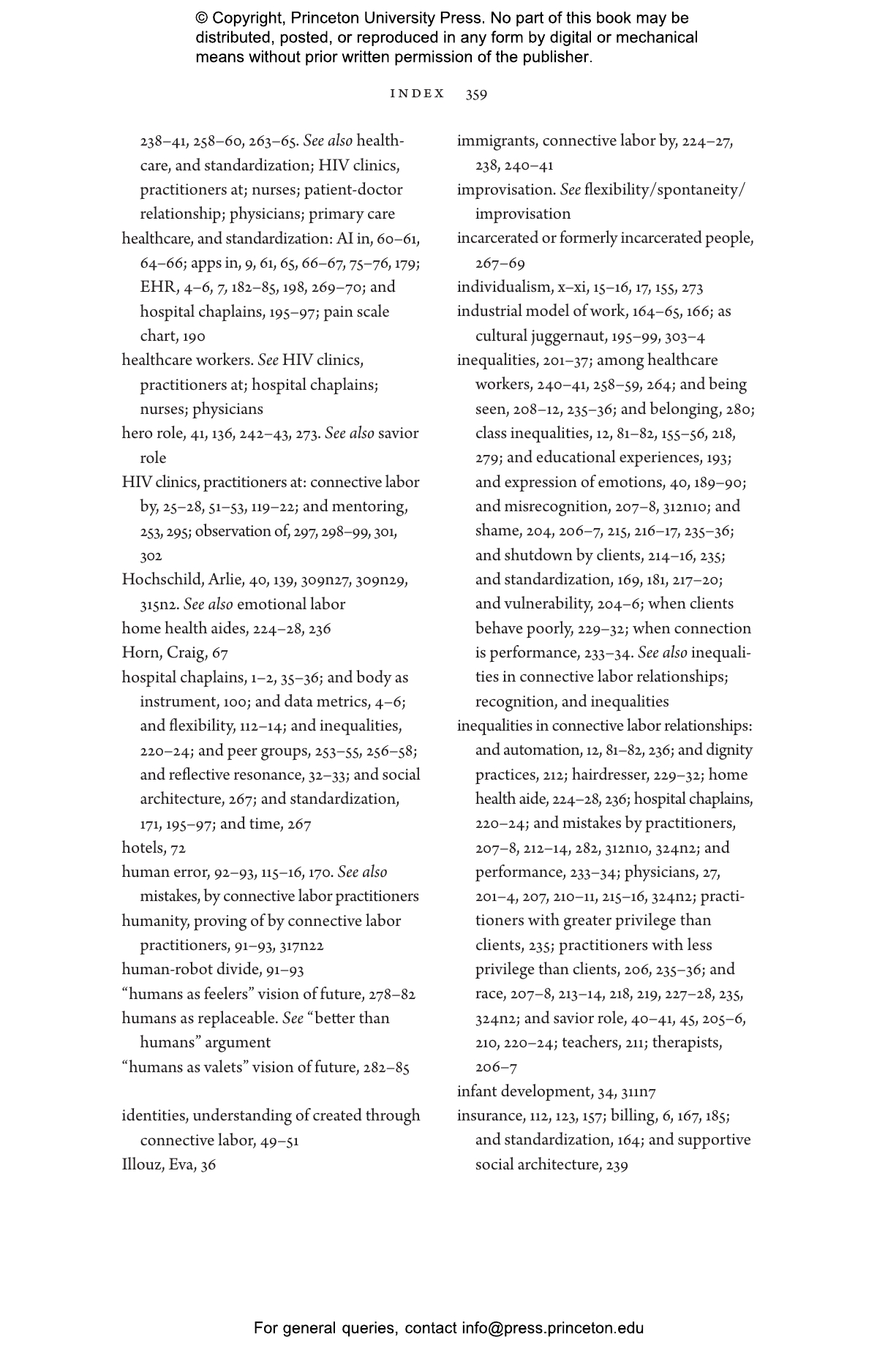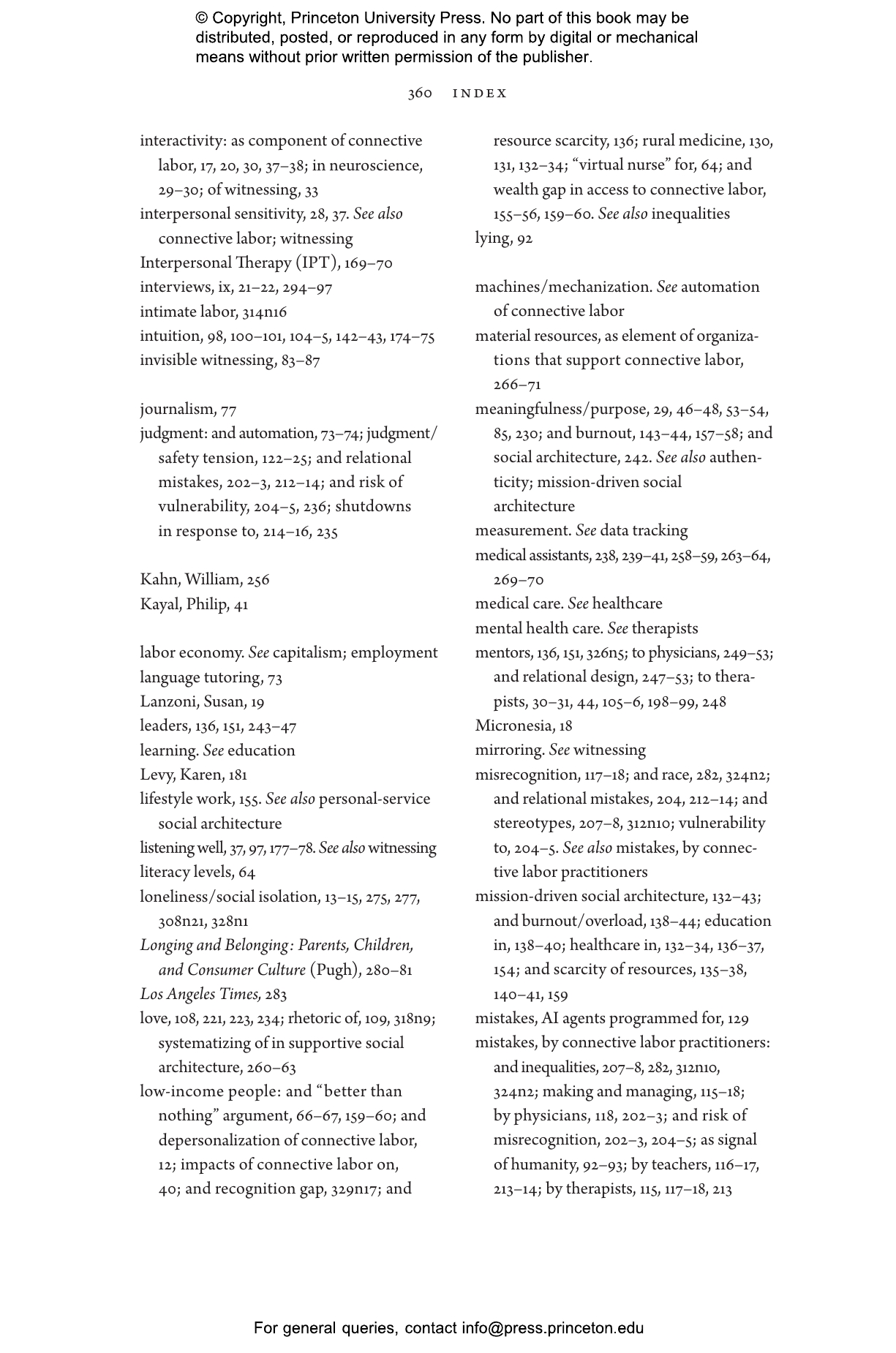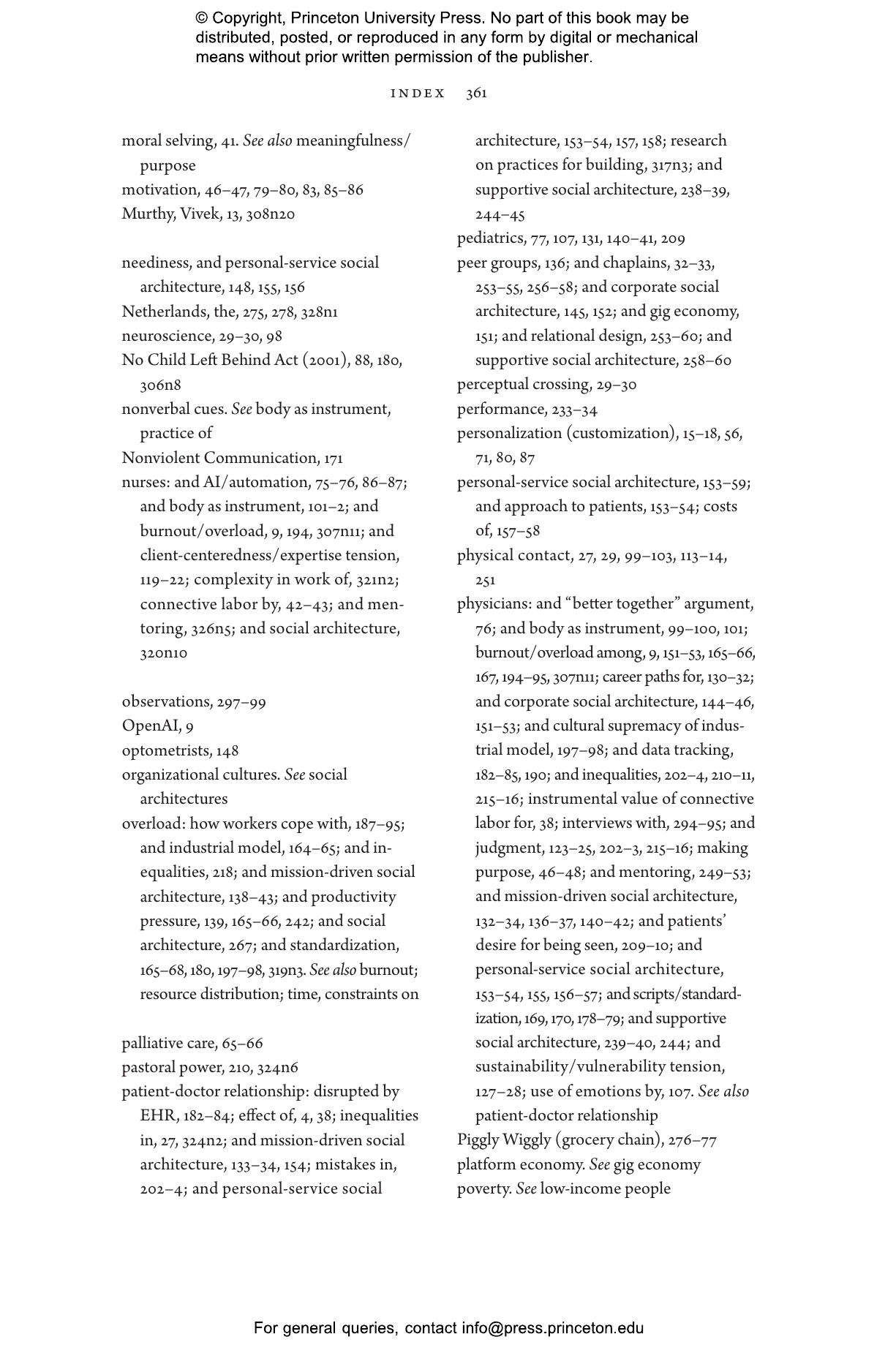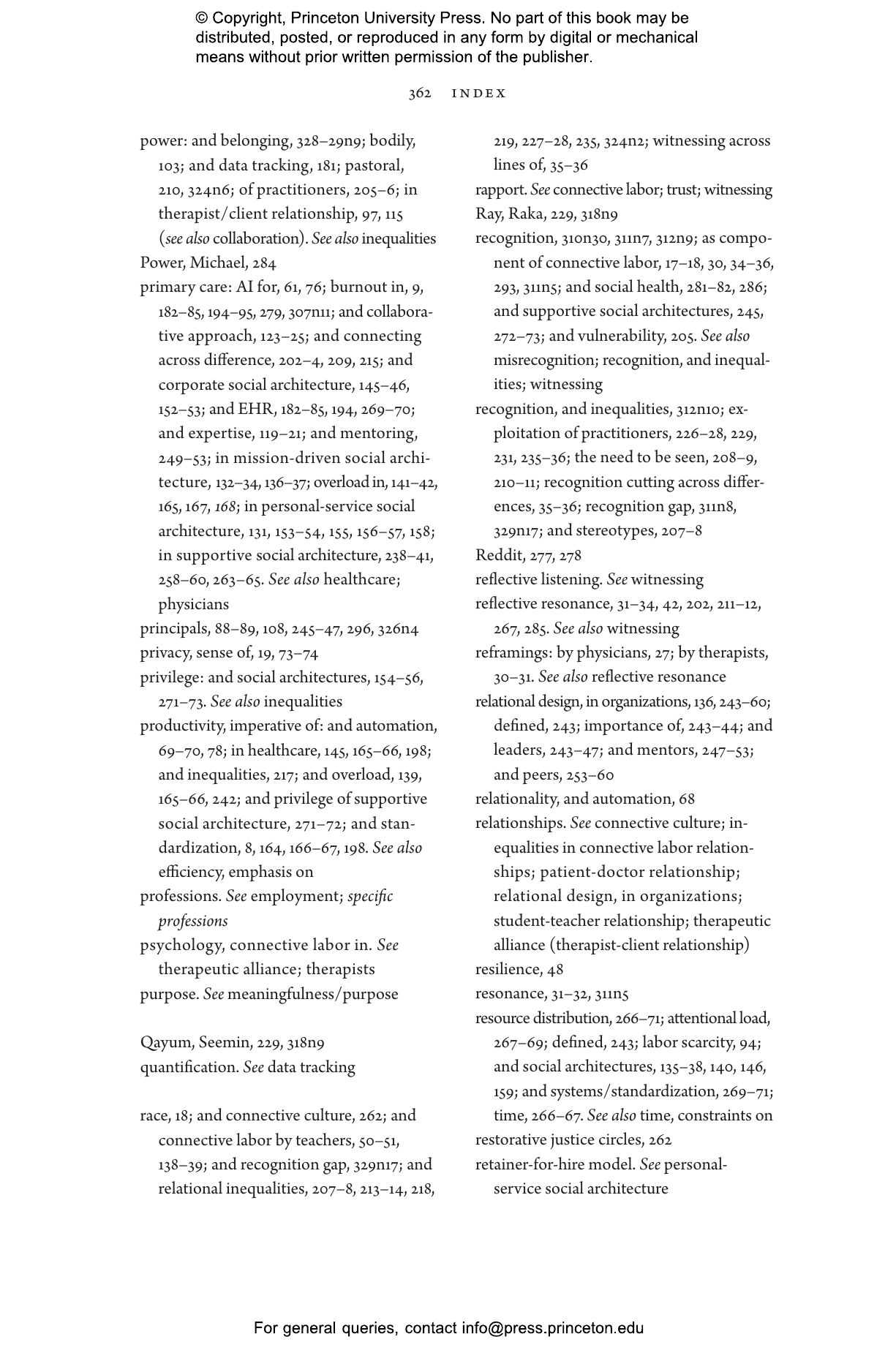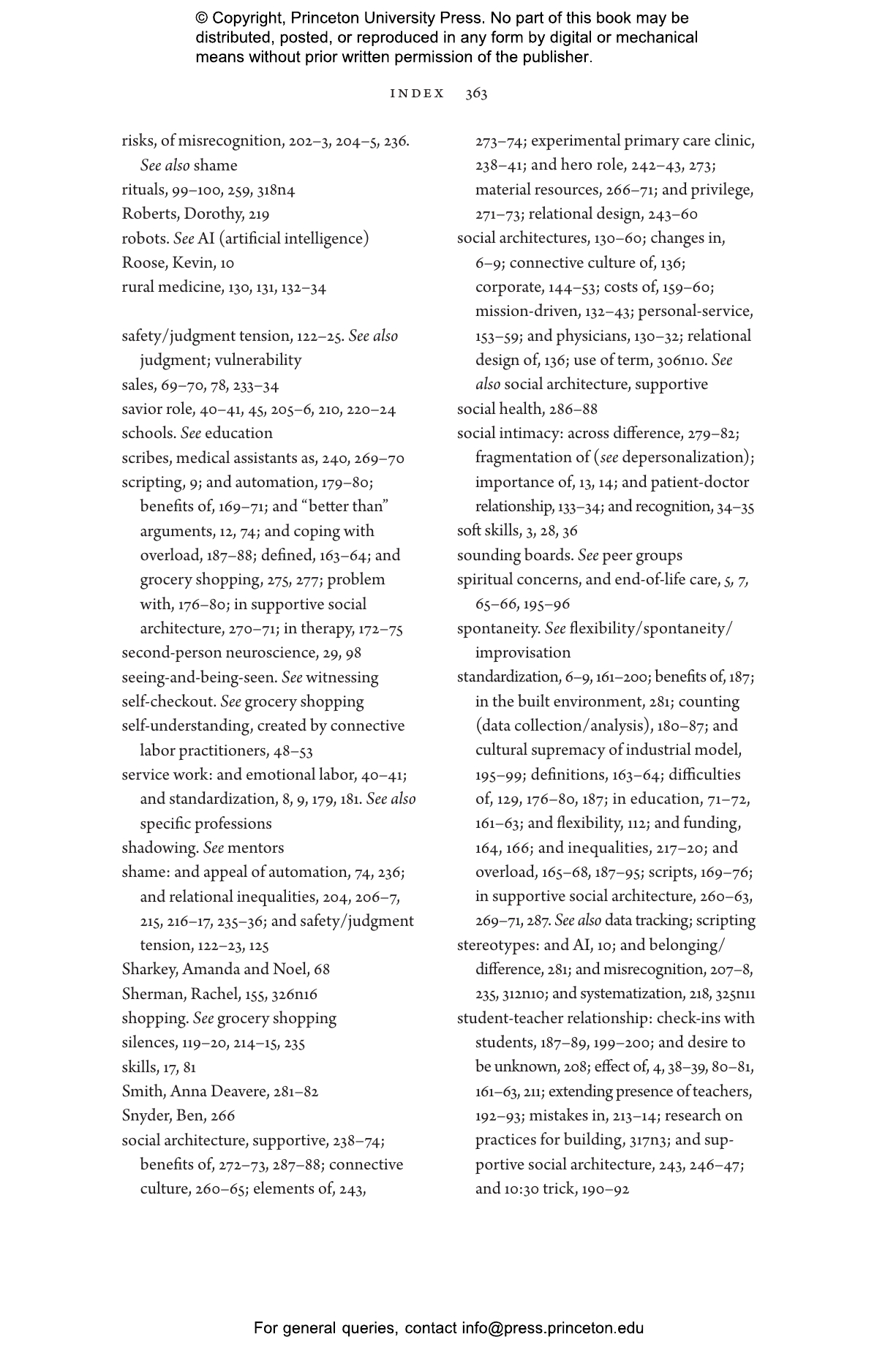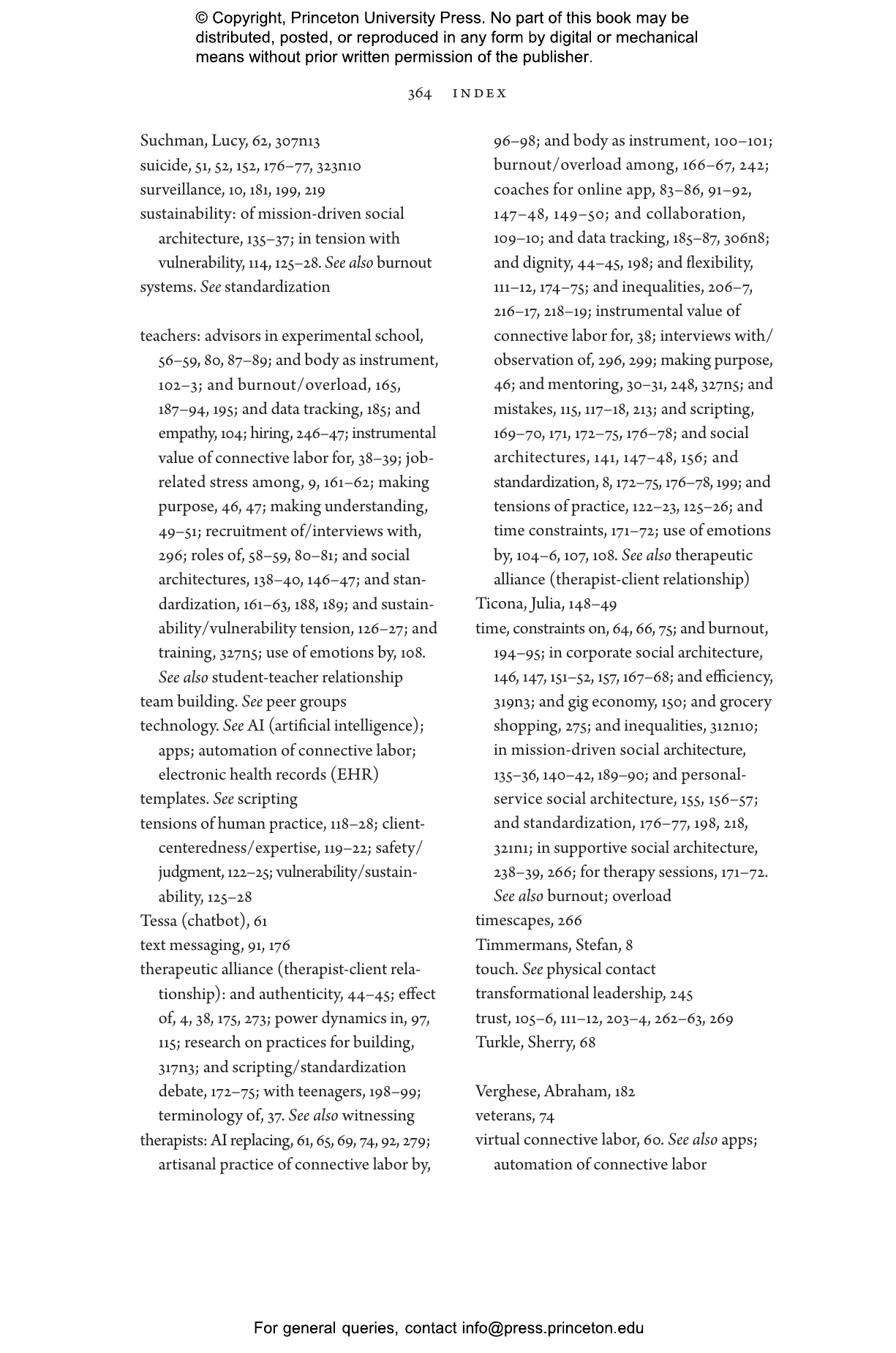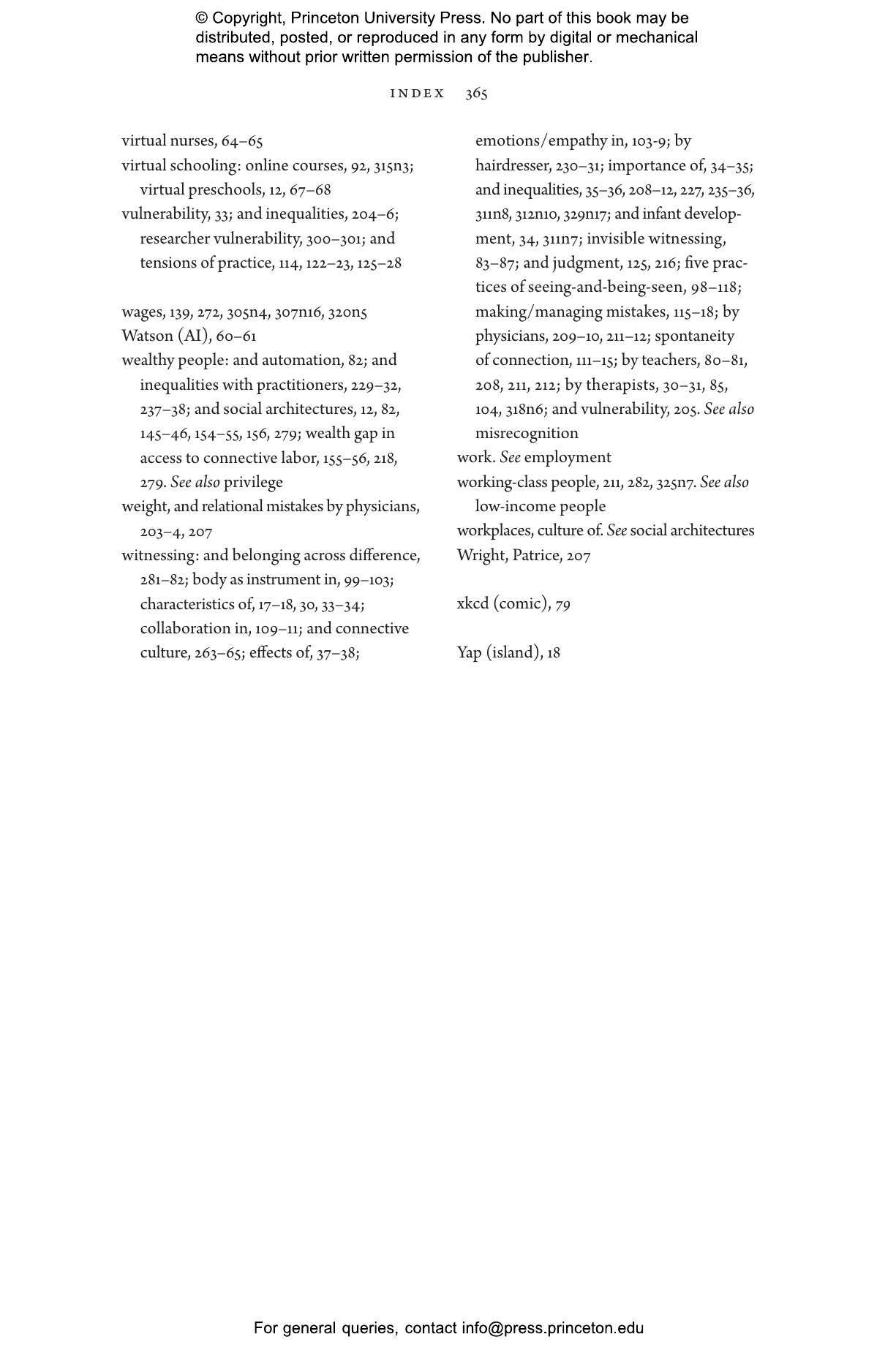With the rapid development of artificial intelligence and labor-saving technologies like self-checkouts and automated factories, the future of work has never been more uncertain, and even jobs requiring high levels of human interaction are no longer safe. The Last Human Job explores the human connections that underlie our work, arguing that what people do for each other in these settings is valuable and worth preserving.
Drawing on in-depth interviews and observations with people in a broad range of professions—from physicians, teachers, and coaches to chaplains, therapists, caregivers, and hairdressers—Allison Pugh develops the concept of “connective labor,” a kind of work that relies on empathy, the spontaneity of human contact, and a mutual recognition of each other’s humanity. The threats to connective labor are not only those posed by advances in AI or apps; Pugh demonstrates how profit-driven campaigns imposing industrial logic shrink the time for workers to connect, enforce new priorities of data and metrics, and introduce standardized practices that hinder our ability to truly see each other. She concludes with profiles of organizations where connective labor thrives, offering practical steps for building a social architecture that works.
Vividly illustrating how connective labor enriches the lives of individuals and binds our communities together, The Last Human Job is a compelling argument for us to recognize, value, and protect humane work in an increasingly automated and disconnected world.
Awards and Recognition
- A New Scientist Non-Fiction and Popular Science Books to Look Forward To
- A New Scientist Best Science Non-Fiction Book of the Year So Far
"[The Last Human Job] cautions readers against unreserved acceptance of [new] technological advances, citing ‘connective labor’ as valuable human work that will not be easily replaced by algorithms. . . . It is filled with stories of those who are in occupations that exemplify connective labor, such as chaplains, teachers, therapists, physicians, community organizers, and hairdressers. . . .[We] must remember what it means to be human, even as multi-billion dollar industries work to attract more of our attention and take more of our time away from meaningful human connection."—Jonathan Wai, Science
"Highly recommended."—Library Journal
"Allison Pugh is a master interviewer. . . . Pugh explores the very substance of her primary method; that rich, ineffable moment in an interaction when you, or your interlocutor, feel seen. Pugh develops the concept of 'connective labor,' the collaborative work of emotional recognition. . . . Pugh is a force—both in the depth and complexity of her scholarship, and the ease of connection she brings to conversation."—Elizabeth Fetterolf, Public Books
"Commercial logic, coupled with technology, is eroding the spontaneity of human contact. Pugh's message is plain: we have to make a concerted effort, in the workplace and in our lives, to revive our social worlds."—Simon Ings, New Scientist
"To save connective labor . . . . all of us have a role to play. We can prioritize human connection and patronize organizations that celebrate this work, even when it would be faster and cheaper to do something another way. We can steer clear of apps and technologies that try to outsource relationships to robots. . . . Since reading The Last Human Job, I've made it a practice to take out my headphones in stores and waiting rooms so that I am more present."—Amanda Erickson, National Catholic Reporter
"[Pugh’s] writing is clear and accessible. . . . [Arlie Russell] Hochschild coined the term ‘second shift,’ which many readers will recognize as shorthand for gendered tasks that women perform when they get home from wage-paying work. I suspect that, years hence, readers will use Pugh’s terminology in a similar way."—Cathy Corman, Provincetown Independent
“Digital systems are rapidly replacing human beings because, we are told, they are more efficient and less biased. The Last Human Job offers a refreshingly novel criticism of this logic, spotlighting the vital connective tissue created by human interaction that machines cannot possibly replicate. Allison Pugh’s call for connection is essential not only to ward off the well-documented dangers posed by artificial intelligence but, just as importantly, to sustain the collaborative labor needed for social change.”—Dorothy Roberts, author of Killing the Black Body and Torn Apart
“I can’t think of a timelier and more critical book for the age we live in than The Last Human Job. Healthcare interactions, social intercourse, and the daily acts of life are rapidly changing and being distorted by technological advances such as AI. Pugh gives us an insightful overview of these challenges and a road map for the future.”—Abraham Verghese, author of The Covenant of Water
“Based on years of probing interviews with therapists, doctors, teachers, chaplains, and others, Allison Pugh takes us to the frontline delivery of connective labor and makes a powerful case for why it matters so much. This is a mind-expanding and landmark book.”—Arlie Russell Hochschild, author of The Managed Heart: Commercialization of Human Feeling
“Allison Pugh has written an insightful, eye-opening book that gives us a new vocabulary and conceptual framework to capture care work and so much more. The Last Human Job is vital reading for anyone interested in technology and humanity.”—Anne-Marie Slaughter, CEO, New America
“The Last Human Job takes automation discourse to the next level. In a crowded field, Pugh stands out by engaging in rich, illuminating conversations with nurses, chaplains, therapists, and other ‘connective laborers,’ movingly demonstrating how they bring dignity, purpose, and understanding to their workplaces. The result is a brilliant synthesis of description and prescription, facts and values, and first-hand observation and theory: exactly what is needed now in public debates on AI and labor.”—Frank Pasquale, author of New Laws of Robotics: Defending Human Expertise in the Age of AI
